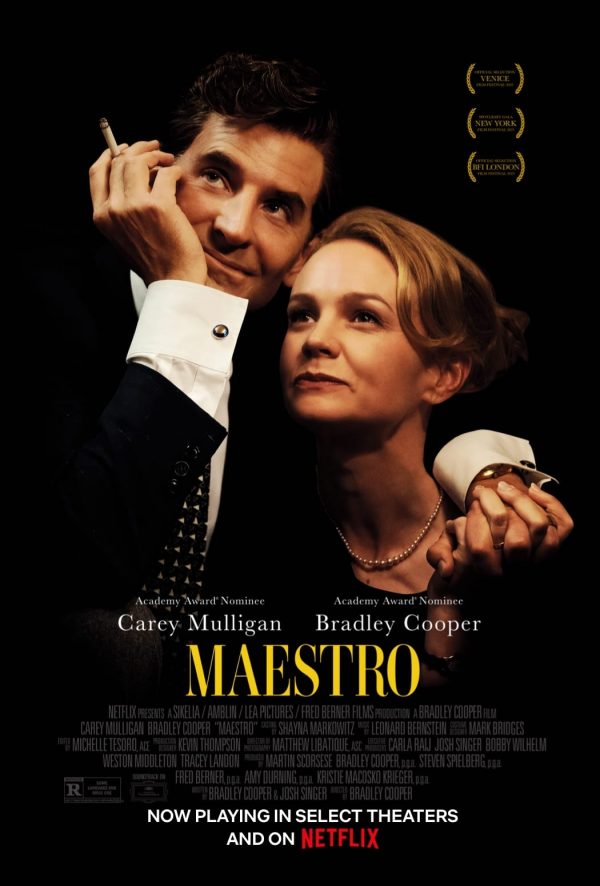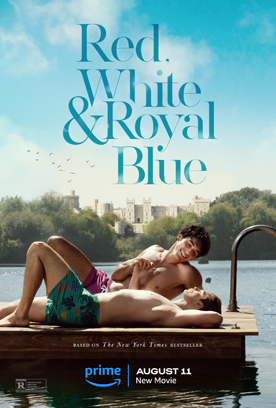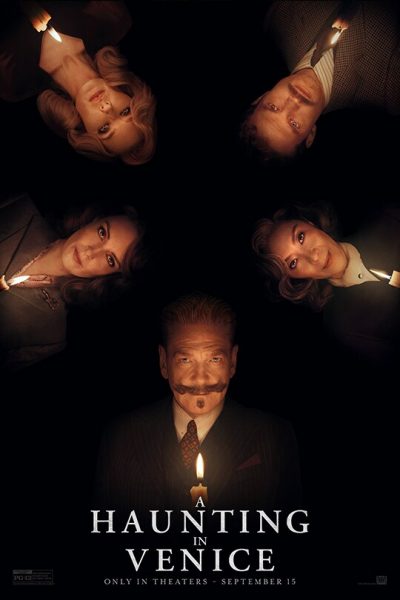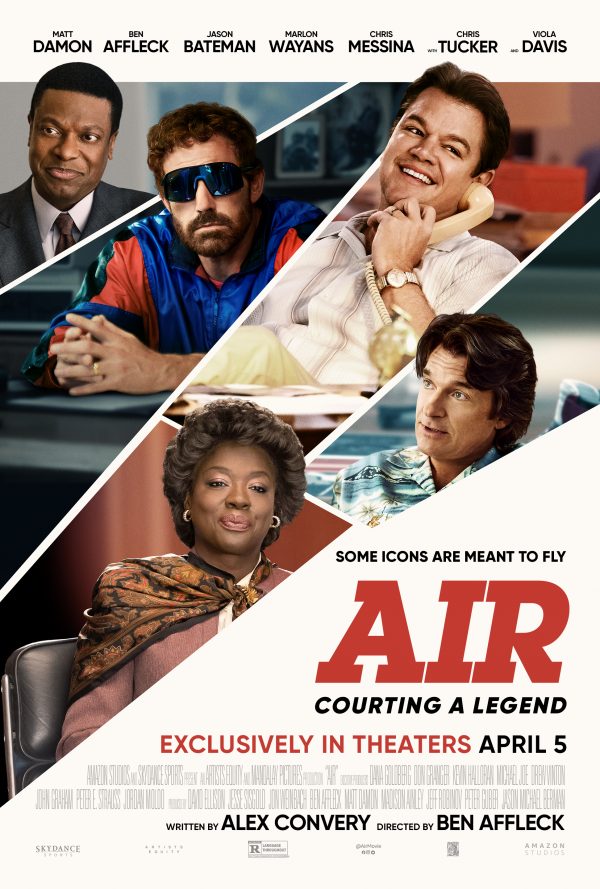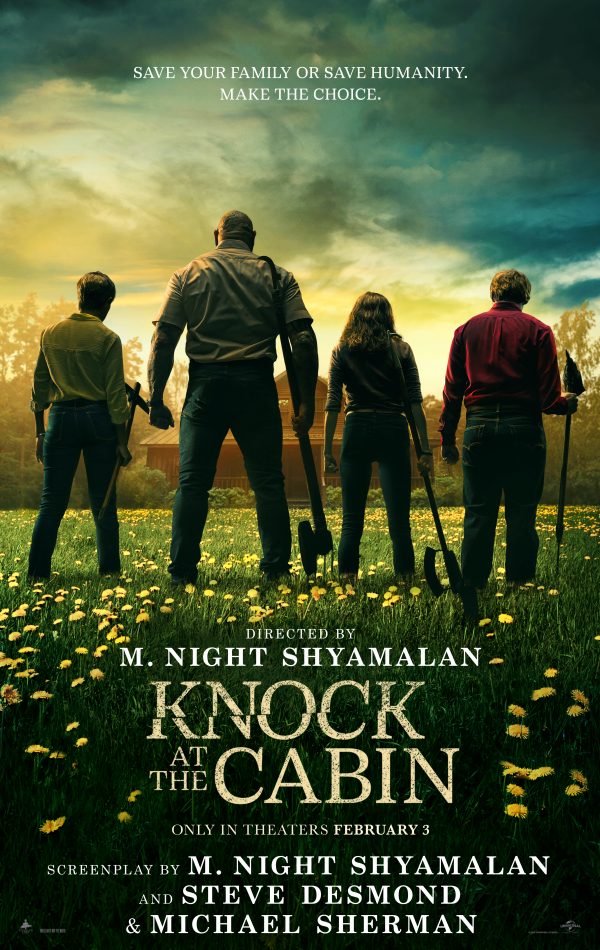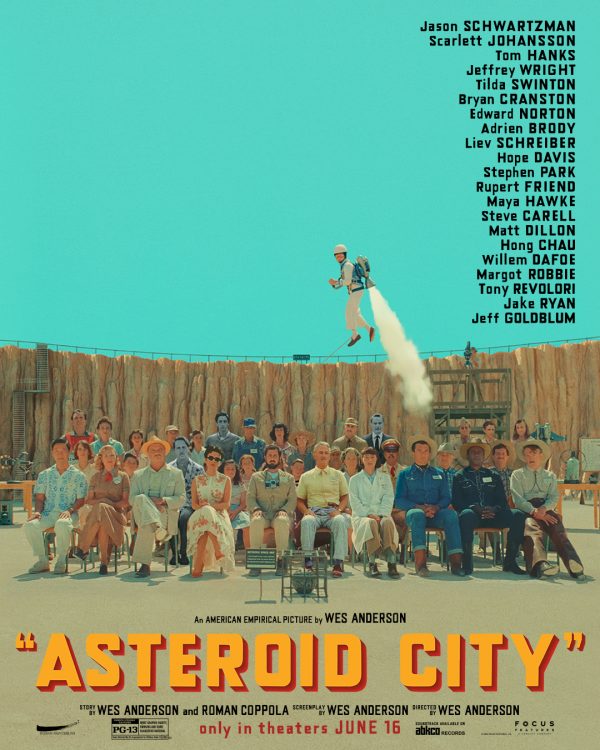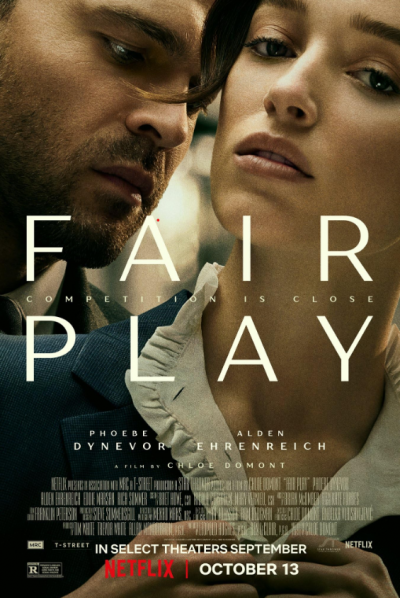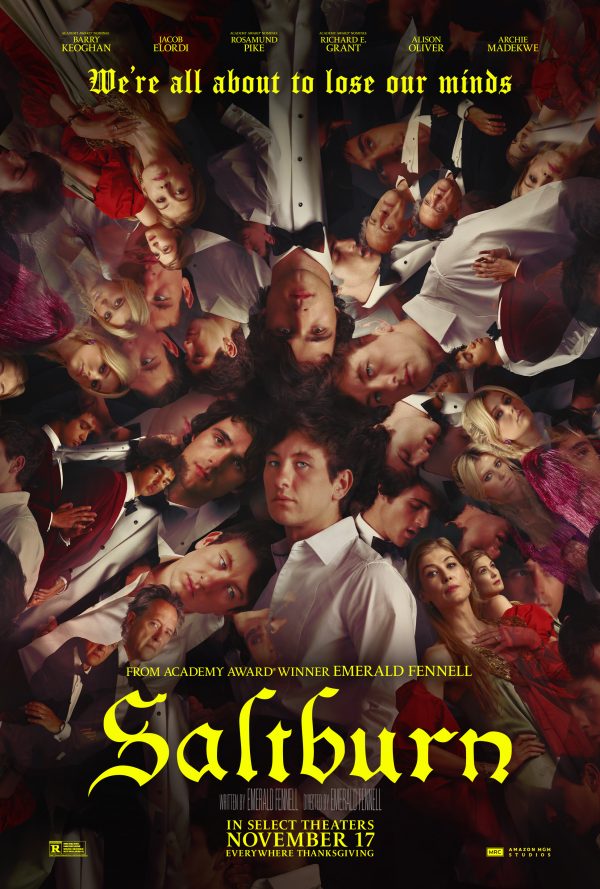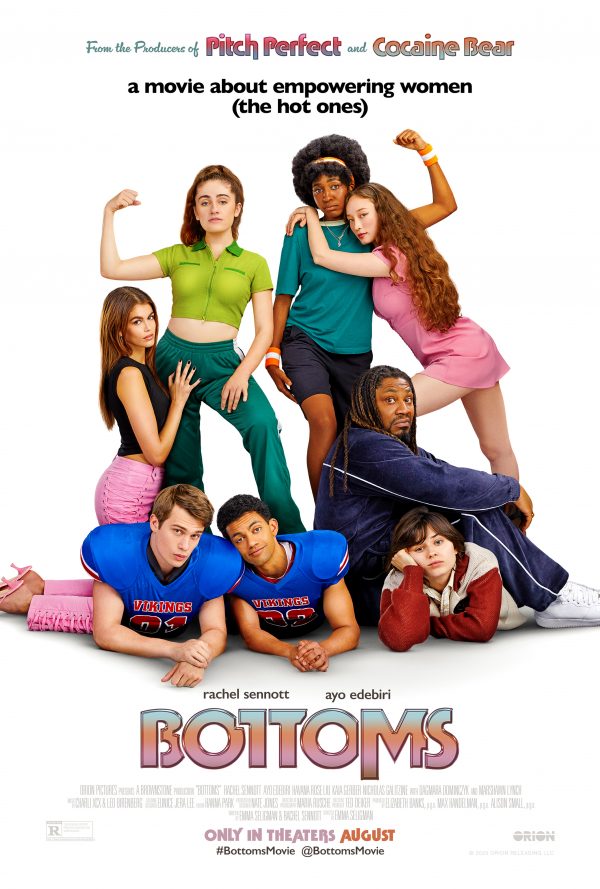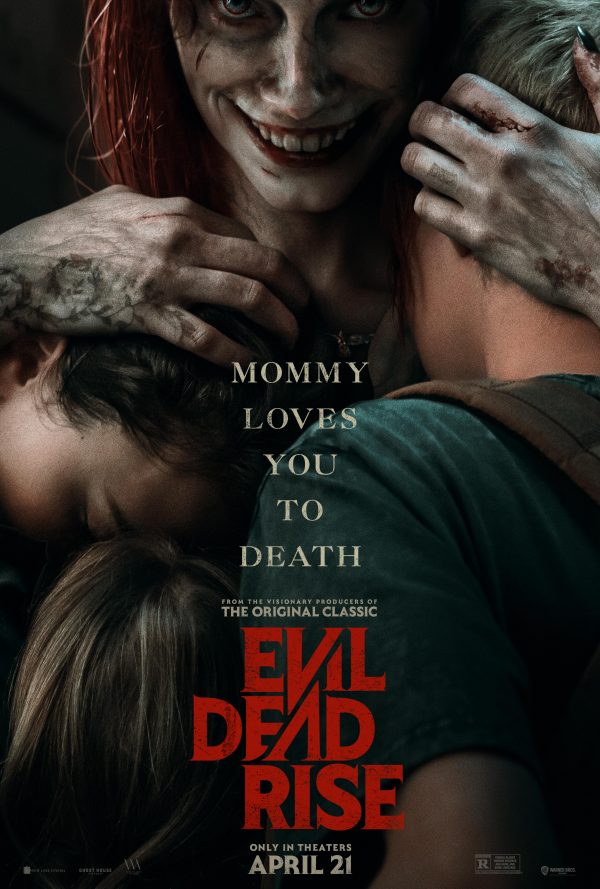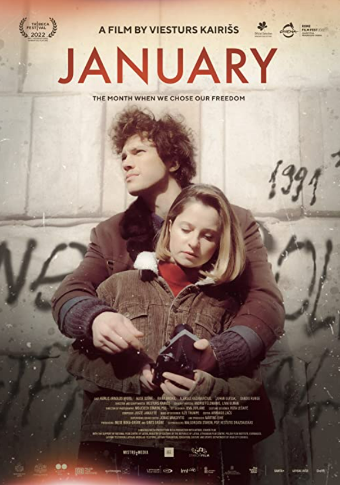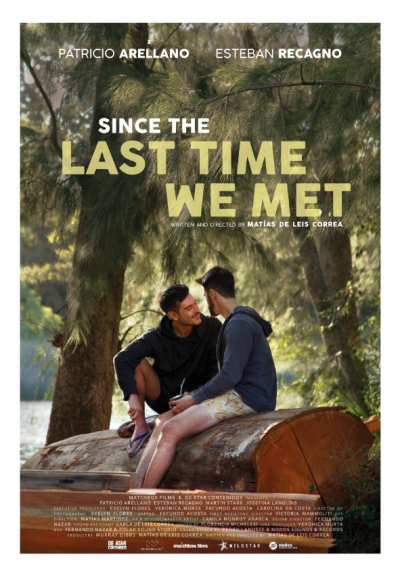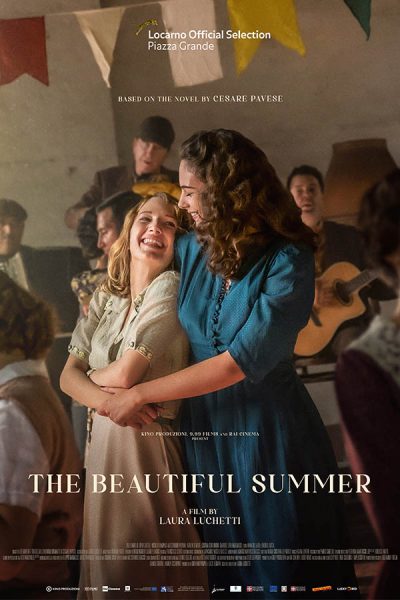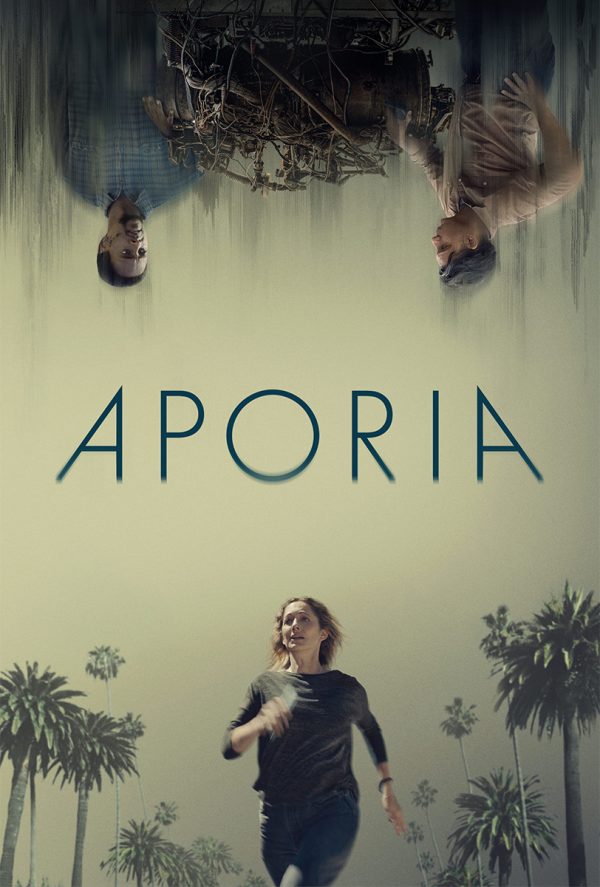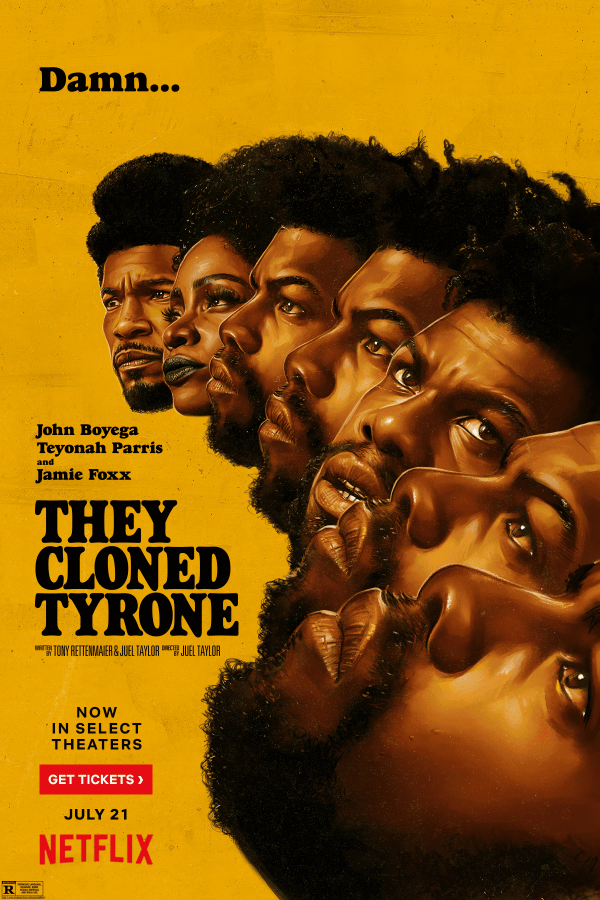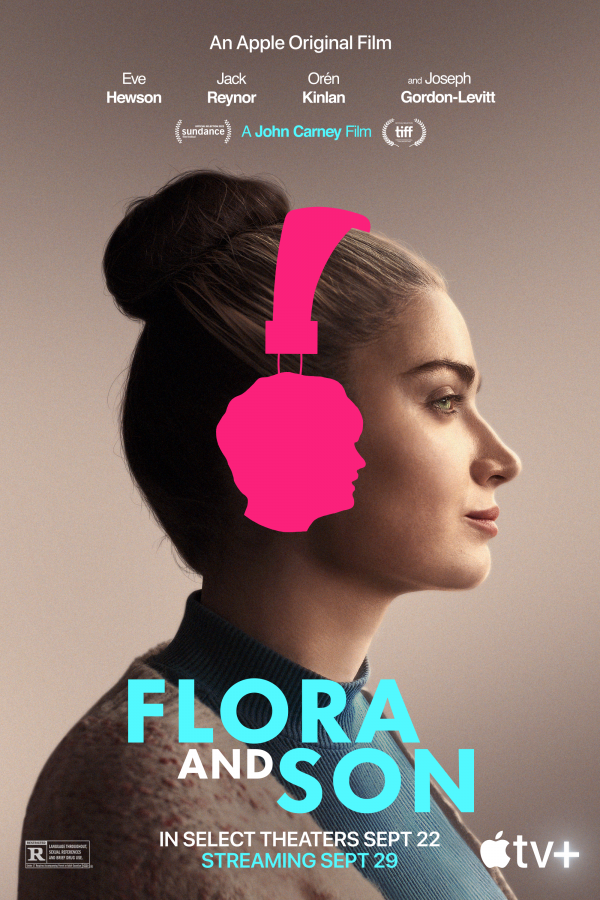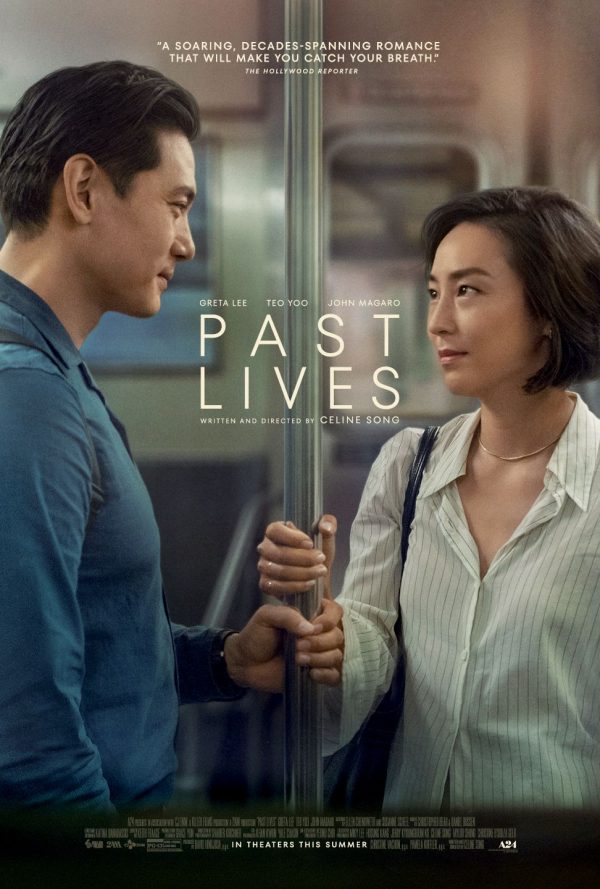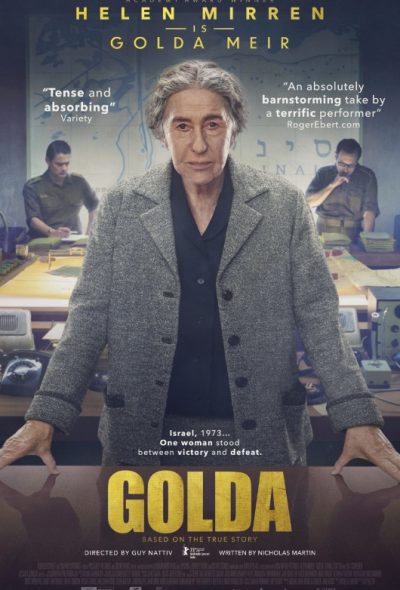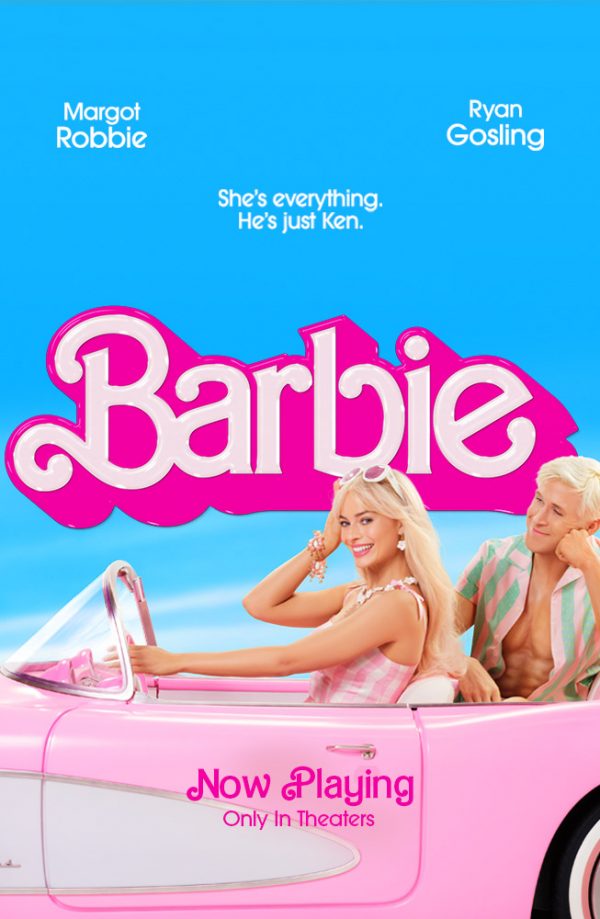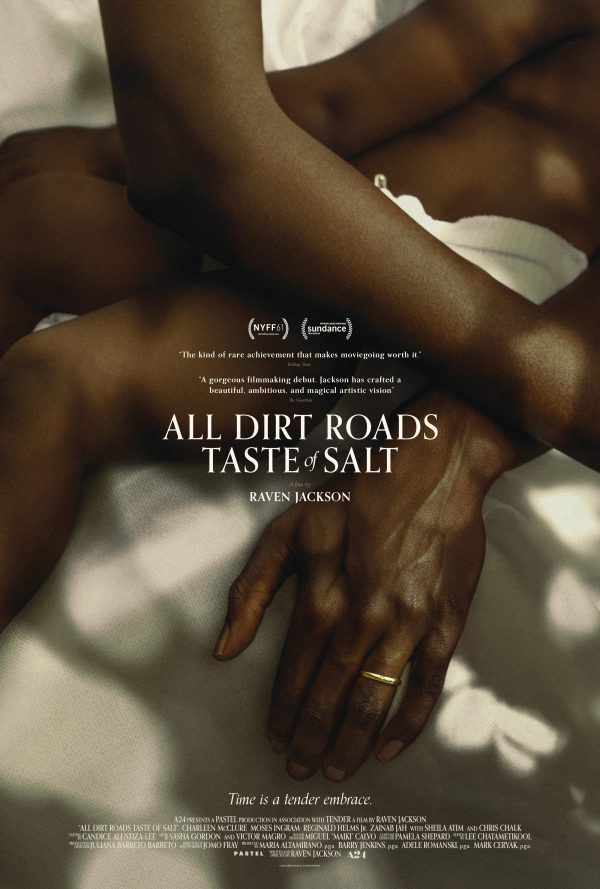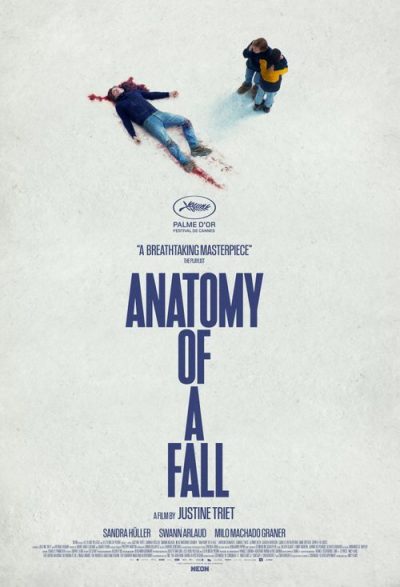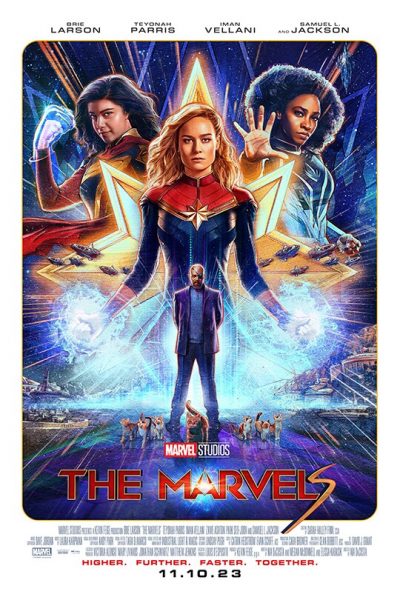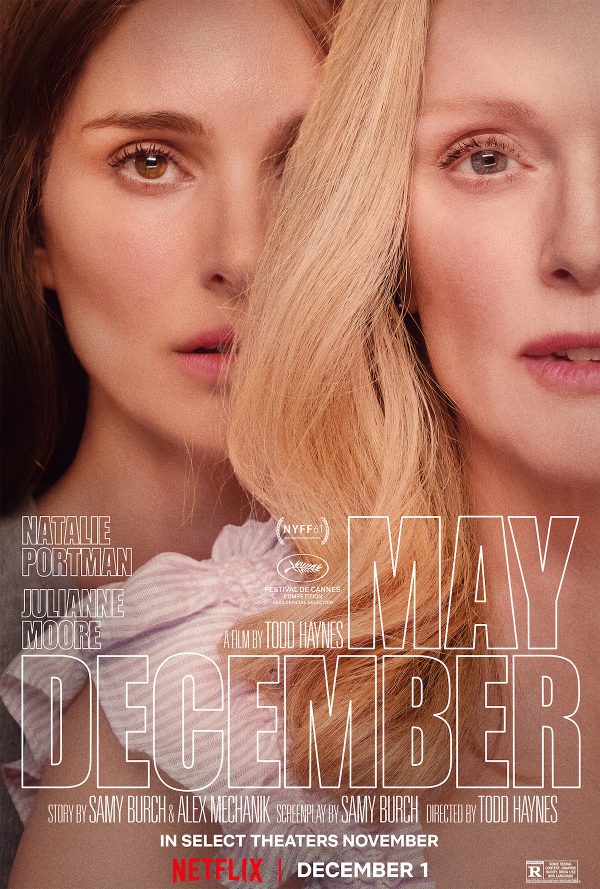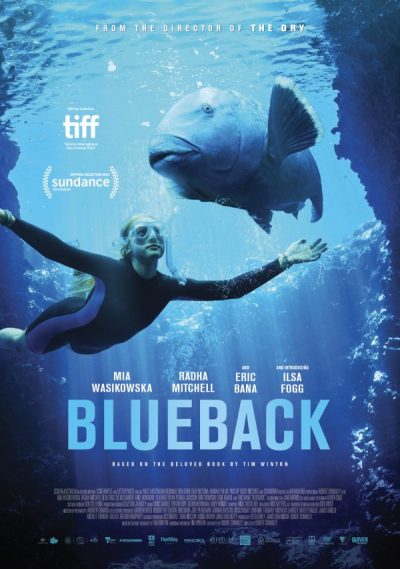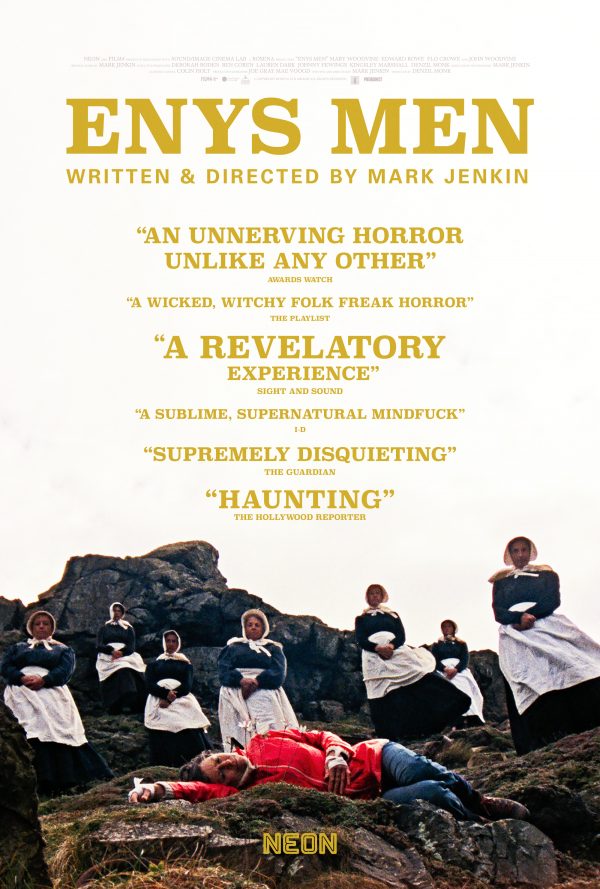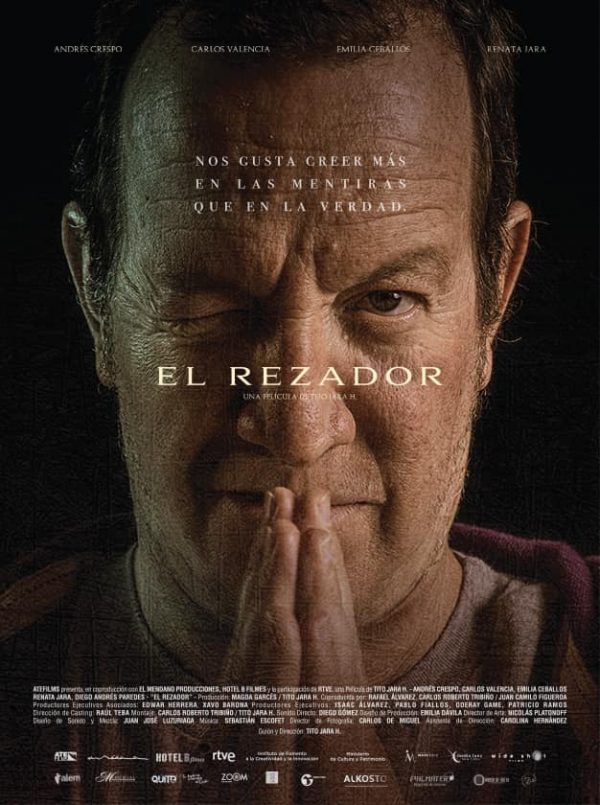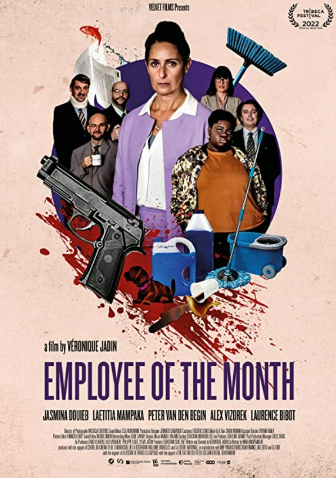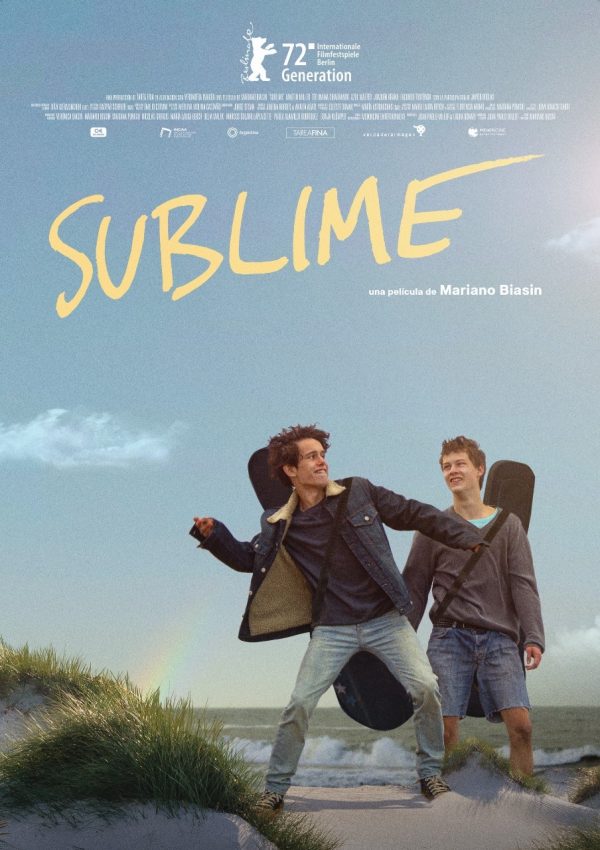With 2023 now in the books, it’s time to look back on the year in movies. In this third of three blogs, I spotlight my Top 10 Documentary releases of 2023 (some of which were produced in prior years), followed by a list of Honorable Mentions. In each case, I’ve included web site and trailer links, as well as links to my own reviews, either those that have been published as full blogs or as summary write-ups in this site’s Quick Cuts section. In addition, I’ve included a short list of disappointments, in descending order, again with links comparable to those that I approved of. In separate blog posts, I examined my Best [LINK] and Worst Films of 2023, [LINK] which have already been posted.
So, with that said, check out what I thought about 2023’s crop of documentaries. You may not agree with me, and I respect your opinions, regardless of whether our views align. I hope you’ll respectfully grant me the same. And your feedback, as always, is welcome. Here goes!
The Top 10 Countdown
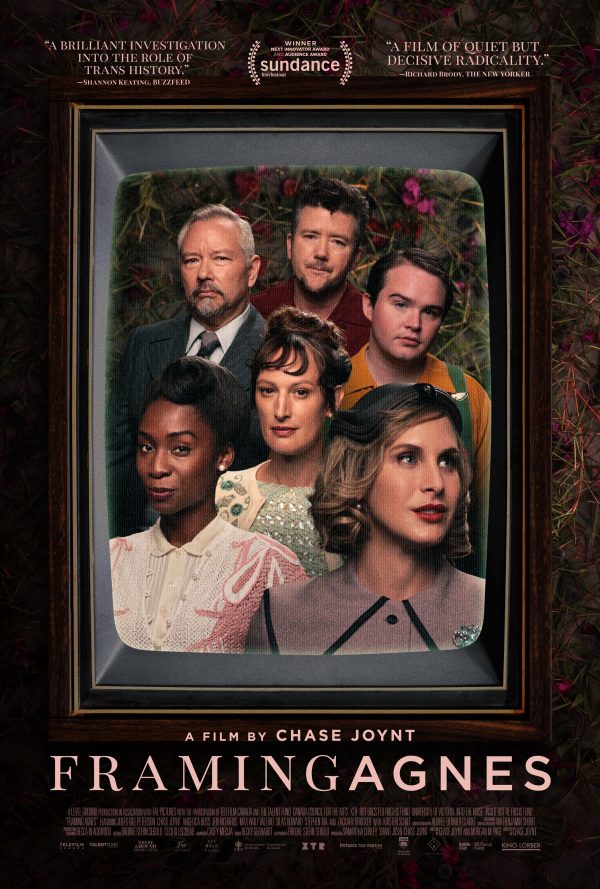
10. “Framing Agnes” (Canada/USA)
Those who believes that they have a good handle on understanding transgender culture and sensibilities are bound to have their eyes thrust wide open by this thoughtful, inventive documentary from writer-director Chase Joynt. In creating this offering, the filmmaker seeks to enliven the little-known life experiences of mid-20th Century transgender pioneers like the title character and how they blazed trails for those who followed. This is particularly true in terms of challenges related to acceptance and often having to trade one set of unfulfilling circumstances for another, in both cases as a result of society’s rigid gender role expectations. The film also addresses how these questions were often compounded by other significant considerations, especially for minorities, such as the pervasive and persistent existence of racial inequities in the days before the Civil Rights Movement, conditions that rendered these transgender individuals virtually invisible. And the picture also shows how many of those issues have lingered to this day, with change only now beginning to emerge in some regards. This is all accomplished through an intriguing juxtaposition of the observations of contemporary transgender historians and re-created actor-portrayed interviews of community pioneers by a fictional TV talk show host who’s based on UCLA sociologist Harold Garfinkel, an early researcher of this subject. Both of the foregoing elements are further intercut with interviews of the transgender performers who portray these community trailblazers, dialogues in which they provide their insights into the characters they play, as well as descriptions of events from their own contemporary life experiences. This mix of narrative components makes for an intriguing, enlightening watch, one that moves along at a refreshingly brisk pace thanks to its astute observations and economical 1:15.00 runtime. To be honest, though, as informative as the talk show sequences are (presented in a 1950-ish black-and-white format a la The Mike Wallace Interview), the use of this storytelling device feels somewhat contrived (if not more than a little precious), despite the depth of the revelations to come out of them. Still, there’s ample food for thought packed into this 2022 Sundance Film Festival award winner, much of it illuminating about both this diverse community and the notion of gender itself, regardless of one’s leanings.
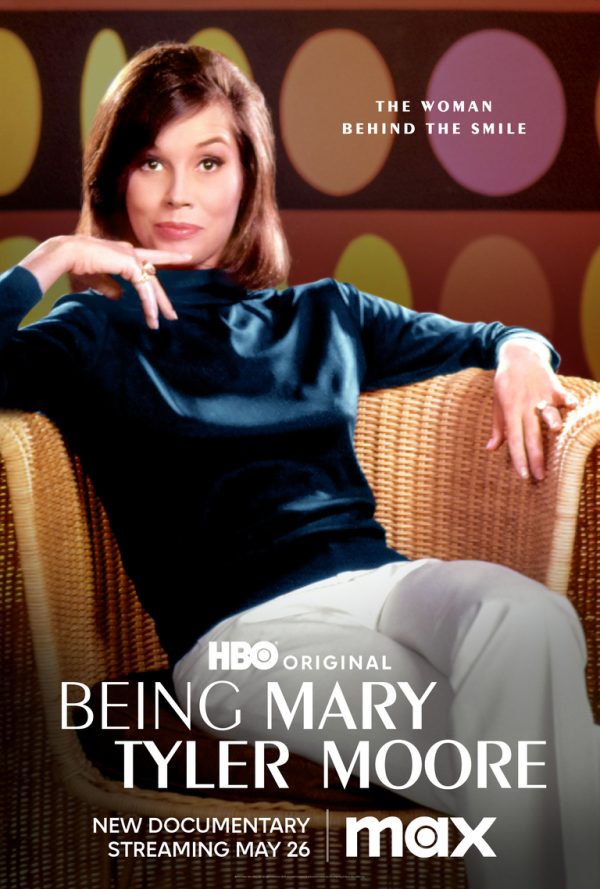
9. “Being Mary Tyler Moore” (USA)
To say that iconic actress/dancer/comedienne Mary Tyler Moore was a gifted, complicated, reserved, often-misunderstood individual is indeed an understatement. However, director James Adolphus’s Primetime Emmy Award-nominated HBO documentary about her life presents a reverent, insightful and respectfully candid biography of the famed star of TV, stage and screen, showing Moore in all of her magnificent multidimensionality. As the winner of seven Emmys, three Golden Globes, a special Tony Award and the Screen Actors Guild Lifetime Achievement Award, as well as an Oscar nomination for her tremendous lead performance in “Ordinary People” (1980), she significantly changed the face of television comedy and demonstrated a degree of acting versatility rarely seen. In her TV roles as Laura Petrie on The Dick Van Dyke Show and Mary Richards on The Mary Tyler Moore Show, she opened doors for actresses by portraying characters who hadn’t been seen on the little screen before. And, in a wider sense, in her role as Mary Richards, she significantly bolstered the growth of the women’s movement in the world at large, a role she championed despite her own somewhat conventional off-screen lifestyle, a way of life for which she was often criticized by feminists. However, Moore’s personal life often ran counter to the perky, cheerful on-screen persona she routinely projected, and she rarely spoke openly about the many challenges she faced – a sometimes-troubled relationship with her parents, two divorces, the loss of her only son in a gunshot accident, the untimely deaths of her two younger siblings, alcohol abuse and coping with complications from type 1 diabetes. As she aged, however, the fighter within her found ways to work through the anguish, such as choosing projects that enabled her to purge her pain, receiving treatment at the Betty Ford Clinic, becoming an advocate for her favorite causes and finding true love in a third marriage. The filmmaker tells Moore’s complex, moving and inspiring story with an array of clips from her work, archive interview footage with renowned journalists and celebrities, and ample voiceover observations from those who knew her and admired her work. The narrative is admittedly somewhat straightforward and formulaic, but it presents an excellent composite of images and insights into the life and work of a legend, one that’s bound to cause her to be seen in a new light and could well introduce her to a new generation of fans who may not have previously been aware of her many accomplishments. Take a bow, Mary.
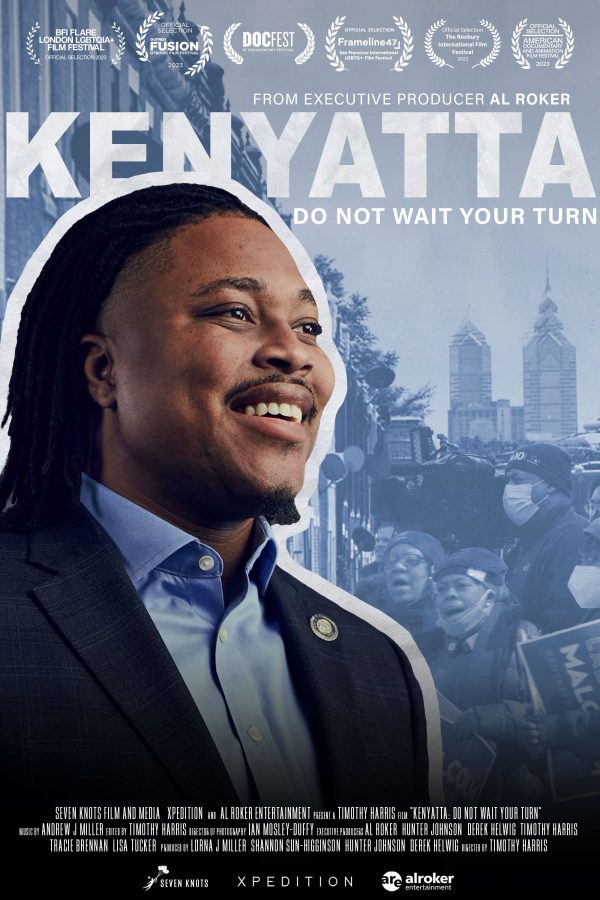
8. “Kenyatta: Do Not Wait Your Turn” (USA)
In an age when politicians on both sides of the aisle are increasingly being seen as incompetent, self-serving and inauthentic, it’s refreshing to learn about one who apparently defies all of those traits. And viewers can now learn more about this inspiring individual in director Timothy Harris’s excellent debut documentary feature, a profile of Pennsylvania State Representative Malcolm Kenyatta (D), the first openly gay person of color to serve in the Commonwealth’s statehouse. The film focuses on Kenyatta’s 2022 run for the US Senate, a campaign fraught with financial difficulties, exaggerated questions of electability, biased punditry and media coverage, and a lack of support from his own party’s officials, including in his home district of Philadelphia. Nevertheless, these obstacles did not stop Kenyatta from soldiering on with his own style of out-and-proud, shoot-from-the-hip style of politicking, especially against his two better-known, better-financed Caucasian opponents. But, the election aside, one of the great strengths of this film is its examination of his upbringing and his life outside of politics, most notably his loving relationship with husband Matthew Jordan-Miller Kenyatta. By doing this, the filmmaker shows how Kenyatta’s personal life has shaped his policies and the apparent authenticity of his message, one driven by compassion, heartfelt sincerity and a growing intolerance of a system that seems hellbent on preserving a status quo that’s ever more exclusionary than not. This well-balanced, superbly integrated approach makes for excellent documentary filmmaking, giving audiences a comprehensive view of its subject and reason to see why he could easily be looked on as a rising star in American politics, one who speaks for many who don’t feel that their voices are being heard by the current establishment. Executive Producer Al Roker and his colleagues have created an insightful, uplifting watch, one that may actually give us some bona fide hope for the future of the nation’s politics – not to mention the nation itself.
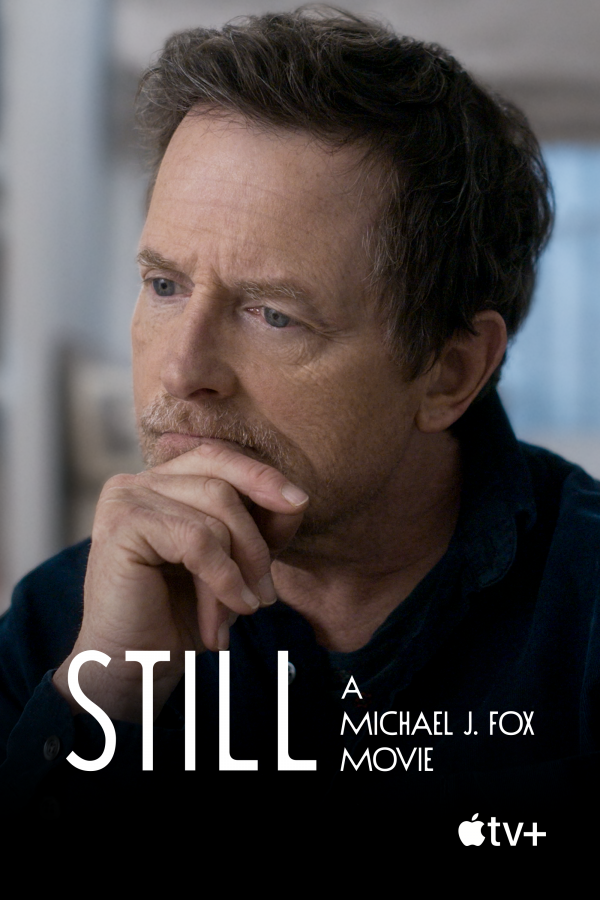
7. “Still: A Michael J. Fox Movie” (USA)
In the 1980s, actor Michael J. Fox burst onto the entertainment scene as one of the decade’s mega-stars with the success of his hit TV show Family Ties and a string of popular movies, most notably the iconic sci-fi comedy, “Back to the Future” (1985). Before long, he was seemingly everywhere all at once, a fitting development for someone who had lived his life like that from the time he was a child. This frenetic pace of living had followed him for so long, in fact, that he never learned how to be, as this film’s title suggests, still. In 1990, however, he received a medical diagnosis that nearly stopped him in his tracks – he was discovered to be suffering from Parkinson’s Disease, an illness that usually strikes in old age, not someone in his late 20s. It forced him to take stock of himself and his life, though he tried desperately (and surprisingly successfully) to conceal it for years thereafter. His unwillingness to confront the truth about his condition continued a practice that he had been carrying out in other areas of his life for years, his hectic, distracted way of living keeping him in denial and, sadly, giving him a reason to drown himself in alcohol. But he couldn’t continue living that way forever as the disease began to take its course, his illness serving as a much-needed wake-up call to get real. Based on the title character’s writings, director Davis Guggenheim’s latest documentary feature tells the protagonist’s story using an inventive combination of archive footage, interviews with Fox, actor-based re-creations of incidents from his life and footage from his treatment sessions that candidly depict how far his condition has progressed. There are also a number of sequences in which his story is told through fittingly poignant clips from his movie and TV projects, ironically reminding us that art can indeed imitate life. All of these elements combine to present a compelling and touching story, although the film admittedly has some initial difficulty finding traction to tell it. Otherwise, though, “Still” offers an honest, insightful look into the life of a very public figure who has been fighting a very private battle and the effects that effort has had on shaping and evolving his professional, personal and philanthropic pursuits. Most of all, however, this BAFTA Award-nominated offering and winner of four Primetime Emmys shows us how we can identify what’s been missing from our lives and take steps to implement it, no matter how unusual the means may be for showing us the way.
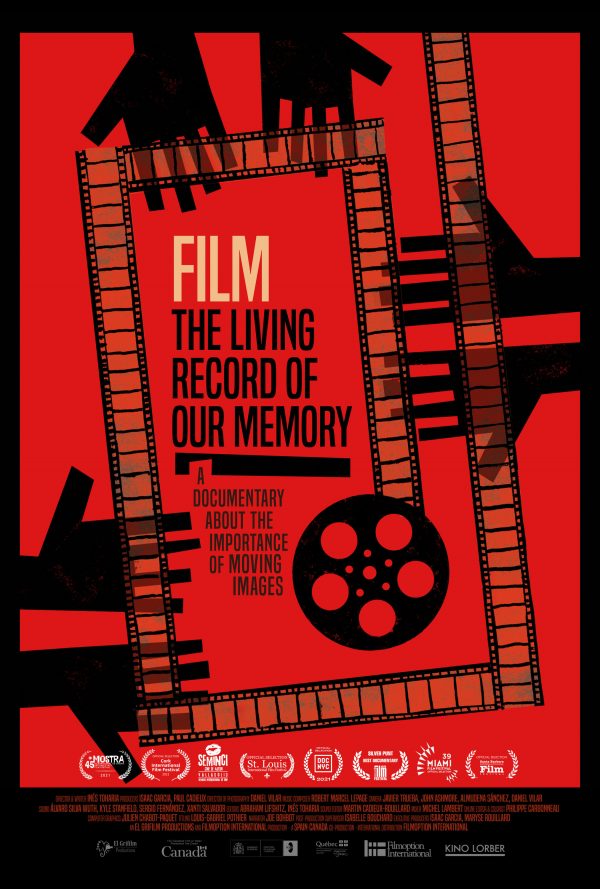
6. “Film, the Living Record of Our Memory” (Spain/Canada)
Film has become so pervasive in our society that we tend to take it for granted. From big screen blockbusters to intimate arthouse dramas and documentaries to home movies, we see these cinematic records of us and our world virtually everywhere we look. It’s a phenomenon that’s present globally, too, one that spans all seven continents. And, because these images have been committed to a fixed medium, we tend to assume that these records will be with us permanently. But will they? As writer-director Inés Toharia Terán’s compelling documentary reveals, that’s not an assumption we should make – indeed, far from it. This excellent examination of film preservation efforts is an eye-opening revelation, showing us just how much of film history has already been lost through deterioration, censorship, careless management and even willful destruction – an estimated 80% of all silent films ever made and roughly 50% of those created since the invention of talkies. The documentary explores the reasons behind these tragedies, as well as the efforts that have been made to save and/or restore pictures that could have easily – or still might possibly – become lost without concerted initiatives to protect them. Terán’s work is particularly impressive from the standpoint of comprehensiveness, showing the impact that this effort has had on film collections from around the globe, from all ages past and from all genres, including not only entertainment offerings, but also documentary footage and even those designed to capture cherished personal memories. Through interviews with leading directors, archivists, restoration professionals and photographic industry experts, viewers gain an insightful new appreciation for why these celluloid records matter to us and why it’s important to make the effort to save them from neglect before they’re gone forever. Admittedly, some may find this offering a little overlong, but, in my view, better more than less when it comes to a showcase aimed at purposely illustrating the need to preserve these precious and otherwise-irretrievable materials. And, to its credit, the film does a fine job of keeping its narrative from becoming too technical, a noteworthy accomplishment for a subject that could easily become overly burdened by indecipherable jargon. “Film” is must-see viewing for anyone who loves movies and passionately desires to see as many of them curated as possible, making their continued existence available to posterity as a genuine living record of our memory.
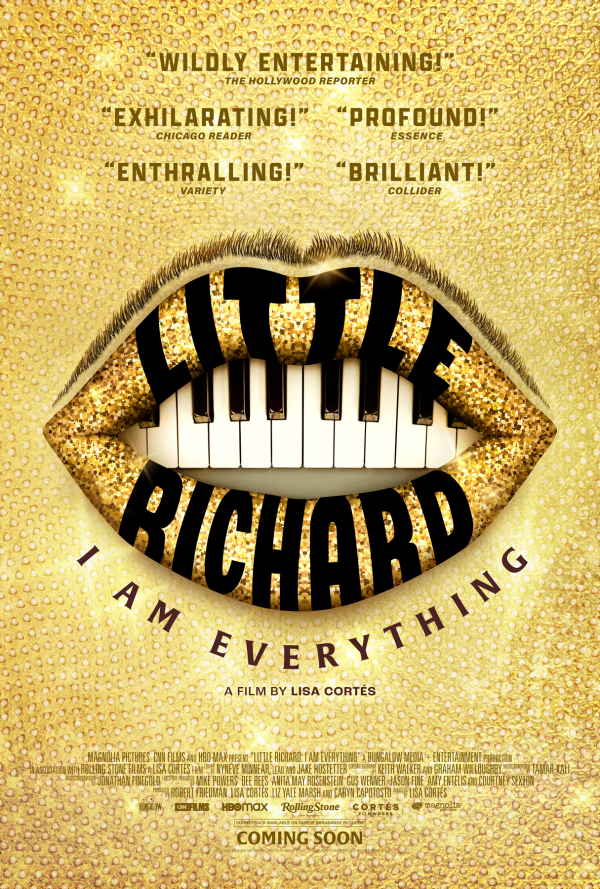
5. “Little Richard: I Am Everything” (USA)
Sometimes it takes a movie to help set the record straight. And, when it comes to designating who truly is the king of rock ’n roll, this documentary from director Lisa Cortes does just that. Richard Wayne Penniman – professionally known as Little Richard (1932-2020) – burst onto the pop music scene in the mid-1950s with a singular, unrestrained, high-energy style that set him apart from other aspiring performers at the time, achieving tremendous success with hits like “Tutti Fruitti” and “Long Tall Sally,” among others. However, even though he developed a strong following and a reputation for chart-busting releases, he never quite attained the widespread notoriety of others, like Elvis Presley and Pat Boone, particularly when they covered his hits. He also didn’t achieve the financial success that he deserved, thanks to record labels that gave him raw deals. What’s more, as a flamboyant, openly gay Black musician at a time when those qualities were far from well tolerated, he became a target for ostracism and scorn from conservative circles, whose leaders spouted inflammatory claims that he was undermining the moral fabric of traditional American culture with his “decadent” music and “perverted” lifestyle. Yet his blend of colorful performances, mixed with outlandish costumes, thickly applied pancake makeup and frenetic stage antics, backed by tunes that fused boogie woogie, rhythm & blues and gospel, made him a standout, a style that countless artists drew from – and openly acknowledged his influence – when they emerged in their own right, many of whom are interviewed in the film in archive footage or recent conversations. The result here is a revelatory examination of someone who set a standard but who never received the degree of recognition he merited until many years after his debut on the music scene. “Little Richard: I Am Everything” features a wealth of historical footage, including many interviews with the artist himself, along with observations from the likes of Mick Jagger, Billy Porter, Paul McCartney, Tom Jones, Nona Hendryx and superfan filmmaker John Watters, as well as an array of music industry, African-American and gay community historians. Viewers are likely to come away from this Critics Choice Documentary Award nominee knowing a lot about Little Richard that they hadn’t known previously, enabling them to gain a new appreciation for the rock icon and learning much about the many triumphs and challenges he faced during his colorfully enigmatic life. Audiences are sure to come away from this one proclaiming “Long live rock – and the king who finally gets to wear his much-deserved crown.”
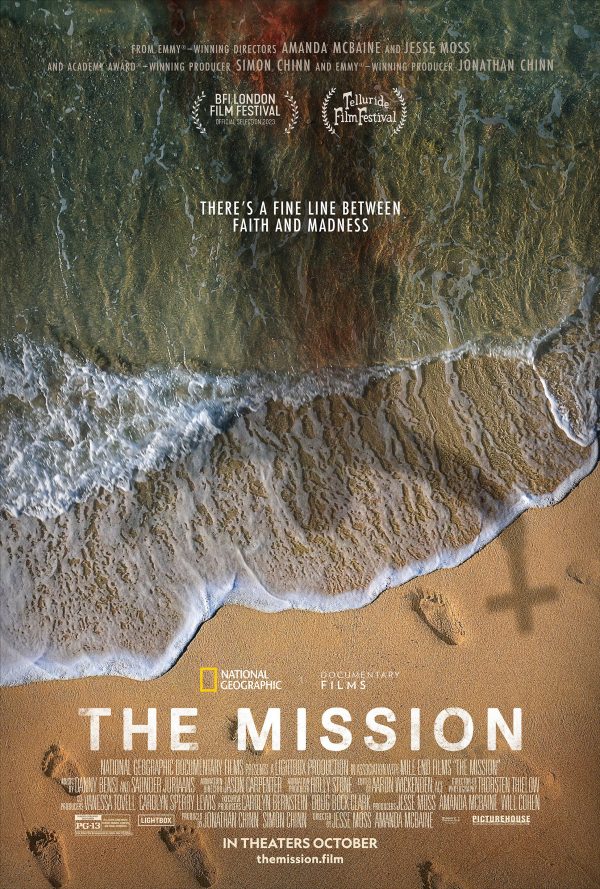
4. “The Mission” (USA)
Is religious missionary work an act of altruism or arrogance? Does it represent a quest for the fulfillment of one’s spiritual potential or a euphemistic cover for an inflated sociopathic ego? And, in either case, is it even possible to distinguish the two? Those are legitimate questions in the case of 26-year-old fundamentalist Christian missionary John Chau, who disappeared and was presumed dead in 2018 while attempting to spread the word of Jesus to the reclusive indigenous residents of North Sentinel Island, an Indian protectorate in the Bay of Bengal. The locale, one of the world’s most difficult destinations to reach and one that’s strictly off limits to outsiders, is home to an obscure, little-known tribe with a reputation for being mistrusting of and unwelcoming to strangers. Yet Chau was convinced that it was his duty (and destiny) to convert them to Christianity no matter what, even at the cost of his life, a concern that worried his family, friends and seasoned missionaries who had attempted comparable initiatives with native people in other parts of the world. It was an effort that raised questions about Chau’s motivations: Was he a committed religious zealot who truly wanted to spread the word of Christ, or was he suffering from a maniacal Messiah Complex hellbent on testing the limits of his courage, hubris and personal capabilities? Directors Amanda McBaine and Jesse Moss seek to answer these and other thorny questions about this enigmatic individual whose real intents may never really be known, leaving lingering doubts and pain about his mission in the minds of those who knew him. Thanks to unprecedented access to Chau’s kindreds, as well as his recovered diaries, the filmmakers tell a captivating tale about his experience, along with thought-provoking ethical examinations about the nature and propriety of missionary work in connection with indigenous societies. Should it continue? Is it appropriate for Westerners and devout Christians to interfere in the spiritual lives of those who adhere to alternate viewpoints? Indeed, are these people genuinely in need of being “fixed,” regardless of the alleged nobility behind the intentions of those seeking to carry out these transformations? As the nominee of four Critics Choice Documentary Awards, “The Mission” offers audiences a delicately balanced view of these notions, prompting even the most dedicated disciples of this work to step back and take a new look at what they and their peers are carrying out. It also presents an eye-opening discussion of this subject, encouraging us to ask ourselves, how much is too much when it comes to missionary work, regardless of the religion involved? And when is it appropriate to leave things as they are for those who already appear to be happy and contented in their lives and beliefs? There’s a lot on the line here, and, in light of the nature of this story, that’s something we must never lose sight of.
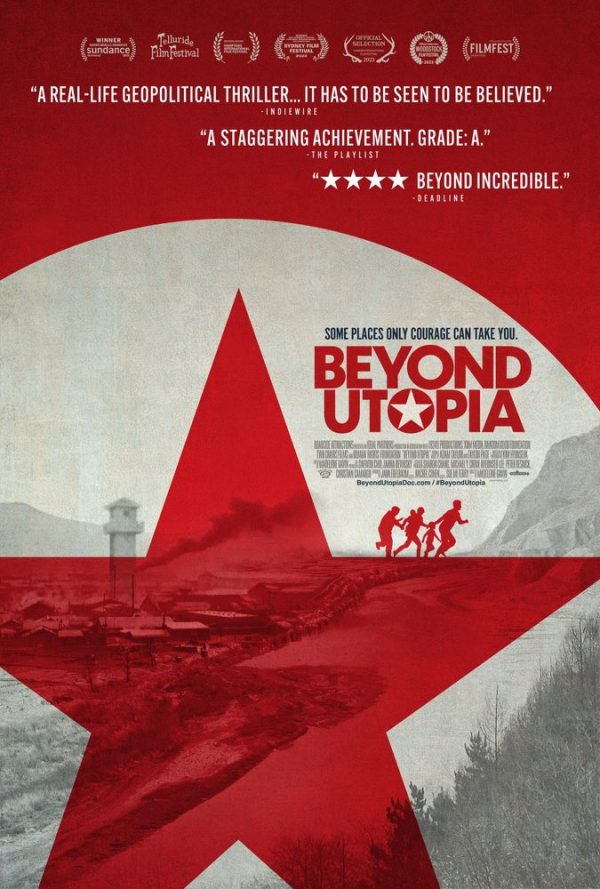
3. “Beyond Utopia” (USA)
In today’s world, it’s almost unfathomable to think that there are places that exist on this planet that operate on the principles of unbridled cruelty, deliberate deception and mass brainwashing, with even the slightest of infractions capable of leading to banishment to remote gulags, brutal beatings and even savage public executions. However, such are the conditions of everyday life in North Korea, a paranoid, ruthless regime that doesn’t hesitate to inflict such indignities on its population and deprive residents of knowledge of anything beyond its borders. In a United Nations human rights report, the unthinkable tactics employed here have been described as being on par with those that were used in Nazi Germany. So it’s no wonder there are many who want to escape this harsh reality – that is, at least among those who are able to see beyond the artifice of the false utopian picture that officials have painted of their sorrowful nation. Getting out is far from easy, however, a harrowing venture that often requires defectors to flee northward to China and then maneuver through the challenging terrain of several neighboring Asian countries rather than simply crossing into nearby democratic South Korea, a sanctuary walled off by a de facto combat zone boobytrapped with countless land mines. Witnessing what refugees must endure is the aim of documentarian Madeleine Gavin’s latest offering, a compilation of defector stories, including those who have succeeded in escaping and those who are in the process of attempting to do so. The latter are compellingly filmed with firsthand, on-the-ground footage, with no reenactments, showing in detail the ordeals they must go through to make their flights to freedom, sometimes successfully, sometimes not. In the process, the film also provides audiences with a concise yet comprehensive history of how North Korea reached the point it’s at while simultaneously revealing some little-known troubling secrets about everyday life in this mysterious land, many of which most outsiders have probably never heard of, let alone seen. Because of this, some of the picture’s imagery may be considered quite disturbing, especially for sensitive viewers, so those who are easily upset by such troubling visuals should take note. Nevertheless, this BAFTA Award-nominated release and Sundance Film Festival Audience Award winner is an important piece of filmmaking that those outside this inscrutable enclave should know about – and hope that the world can help to overcome.
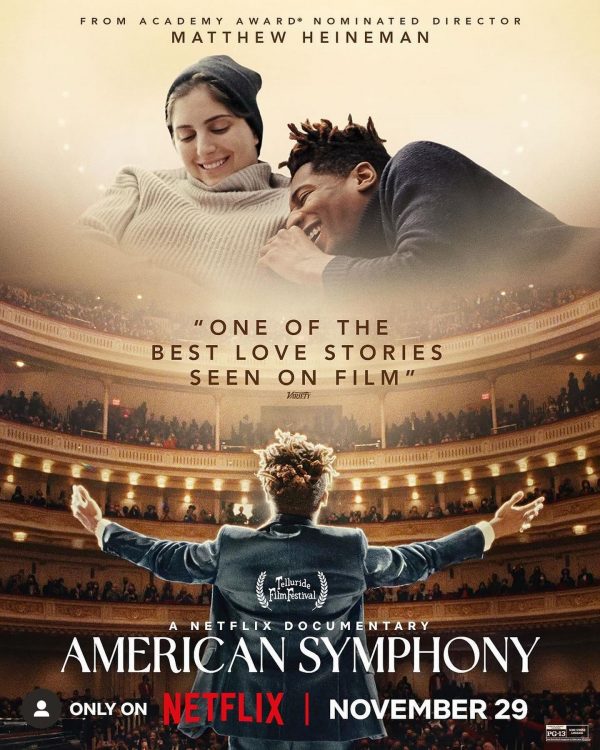
2. “American Symphony” (USA)
Creating a great work of art is very much like creating a heartfelt, loving relationship. Both take work and commitment, both in good times and bad. The challenges can be difficult, but the rewards can be incalculable. Learning how to successfully maneuver through them, as well as how to strike a harmonious balance that keeps both ventures moving forward, is a skill that takes an array of abilities and aptitudes to master, but, as documentary filmmaker Matthew Heineman’s latest so deftly illustrates, it’s an attainable goal, the prevailing highs and lows notwithstanding. The film follows the extraordinary year experienced by musician/composer Jon Batiste and his wife, best-selling author Suleika Jaouad. In 2022, they came face to face with both ends of the spectrum of life. Batiste, an artist with an impressive musical range and repertoire, was reaching new heights in his career, winning five Grammy Awards while serving as band leader on The Late Show with Stephen Colbert and seeking to complete work on an ambitious composition aimed at reflecting the breadth of our national music, diversity and culture, “American Symphony.” At the same time, though, Jaouad suffered a recurrence of the cancer she battled a decade earlier, an illness she chronicled in writings that would come to launch a career; now, after a 10-year remission, she was facing a second, potentially risky bone marrow transplant to treat her condition, not to mention an uncertain future. With such seemingly polar opposite fates befalling them, Batiste and Jaouad struggled to get through their respective challenges while keeping their love and art alive, putting their successes into perspective in light of what they were up against otherwise. This intimate, heartstring-tugging Oscar and BAFTA Award nominee gives viewers a candid, up-close look at what a truly loving couple can experience under such diverse, trying and bittersweet circumstances, but without becoming manipulative or melodramatic. This beautifully photographed story provides an unfiltered depiction of the range of emotions that each partner goes through, particularly when it comes to the philosophical musings observed by each of the spouses. It also showcases Batiste’s wide-ranging musical styles, both in his performances and in his composition process. Admittedly, a few of this offering’s sequences meander a bit, but the overall production is skillfully edited and sensitively portrayed. “American Symphony” is a beautifully moving film, one that reinforces what matters most in life and what makes it worth living, during both good times and bad, as long as we have each other to make our way through it, bringing new meaning to what our marriage vows are ultimately all about.
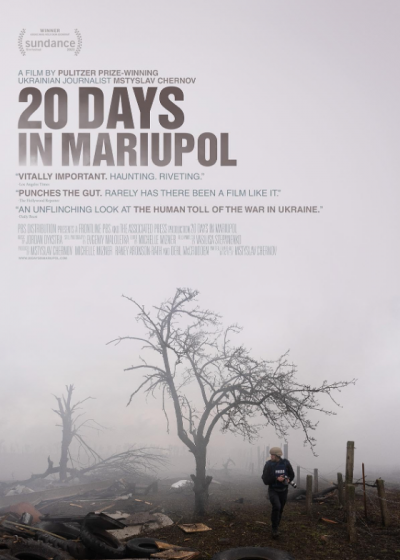
1. “20 Days in Mariupol” (Ukraine)
Considering the searing nature of this troubling documentary, I feel somewhat uneasy in recommending it as must-see viewing. Nevertheless, this is one of those films that has to be seen in order for the truth behind its story to be fully realized. When Ukrainian journalist-writer-director Mstyslav Chernov and two colleagues chronicled the first days of the nation’s brutal conflict with Russia, they probably had no idea what they were in for. Working from the Black Sea port city of Mariupol, they captured devastating footage of the relentless Russian attacks, particularly the enemy’s ruthless assaults on civilian targets, including a maternity hospital, despite assurances to the contrary. The Russians were simultaneously determined to destroy the Ukrainian communications infrastructure to prevent word of the atrocities from getting out to the wider world, seriously hindering the work of Chernov and company as the only international journalists still in the wartorn country at the time. As the city was systematically being destroyed, the international community had little knowledge of what was transpiring in Mariupol beyond Russian President Vladimir Putin’s skewed propaganda claims. But, when images of the warfront finally made their way out of Ukraine, the world got an entirely new perspective on the carnage unfolding there, despite the Russians’ astoundingly incredulous claims that everything that had been photographed was staged, not unlike what one would find on a movie set. Such reporting opened the eyes of the world, first in media coverage at the time and now in this film, a joint production of the Associated Press and the PBS documentary series Frontline. This gripping release holds nothing back, making it an exceedingly difficult watch for virtually everyone, including those with thick skins who ordinarily might not be affected by such graphic imagery. However, it honestly reveals what the Ukrainians were up against in this horrific siege, putting the war crimes of the aggressors on display for all to see. In addition, this offering reinforces the importance of the work of intrepid journalists under the most trying of conditions, particularly where those wreaking havoc are desperate to keep the facts from reaching the light of day. This highly acclaimed film – a recipient of ample awards season buzz and honors, including an Oscar nod for best documentary feature – may be difficult to sit through, but discovering the truth is often a challenging process, and both Ukraine and the world should be grateful that there are those out there who are willing to put themselves on the line to see that through, no matter how treacherous or daunting the circumstances may be.
Honorable Mentions
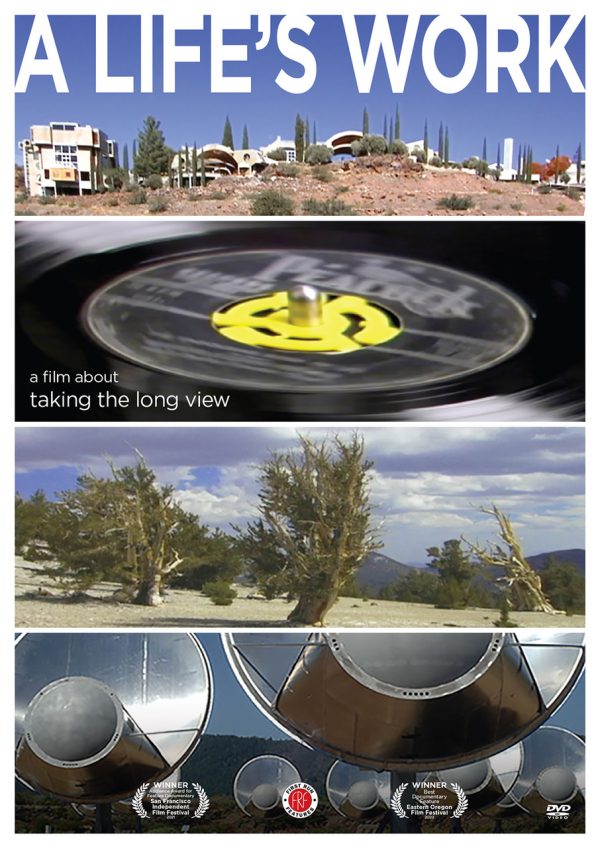
11. “A Life’s Work” (USA)
How inspiring it is to see individuals take on Herculean tasks that they know up front will require considerable time – perhaps even extending beyond their own lifetimes – just for the sheer passion of what they’re doing and what they believe it can ultimately contribute to the well-being of mankind. Such are the cases examined in this debut documentary feature from filmmaker David Licata, who spent 15 years following the undertakings of four remarkably dedicated individuals pursuing an array of diverse projects whose efforts carry long-term implications. The film, available for streaming and on home media, looks at the endeavors of Jill Tarter, former head of the Search for Extra Terrestrial Intelligence (SETI) project; Robert Darden, founder of the Black Gospel Music Restoration Project; David Milarch, founder of the Champion Tree Project; and the late innovative architect Paolo Soleri, a former protégé of Frank Lloyd Wright who launched the “arcology” movement and the construction of Arizona’s ambitious Arcosanti community project. In telling these stories, the director examines not only the particulars behind these ventures, but also the motivations and commitments driving their creators, as well as the challenges associated with carrying out these ambitious undertakings. The film presents a balanced view of each of these projects, told economically and on point, without extraneous padding or irrelevant material, a refreshingly welcome relief considering how many recent documentaries have been put together. What’s most significant about this offering, though, is the inspiration that it engenders among viewers. Audience members are treated to a variety of projects that truly depict what constitutes “a life’s work” in every sense of the expression. It’s quite uplifting to see what our visions and beliefs can yield, and this film brings that notion front and center for all to see.
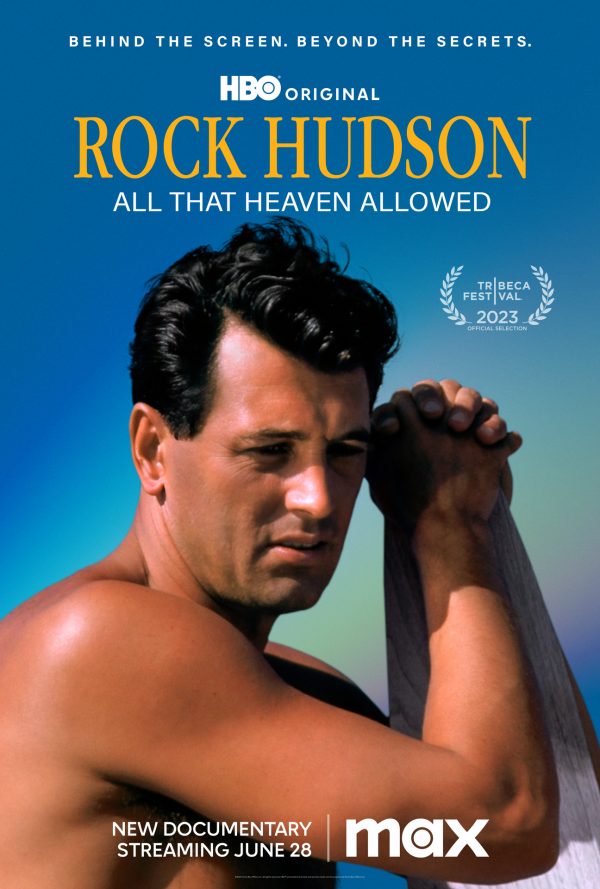
12. “Rock Hudson: All That Heaven Allowed” (UK)
Clean-cut All-American Boy Roy Scherer Jr. probably never envisioned the life he would eventually lead when he was growing up in Winnetka, IL. But, once he transformed into rugged, handsome matinee idol Rock Hudson, it all came together, even if it was not how and what he had imagined. As one of Hollywood’s most sought-after actors in the 1950s, ’60s and ’70s, Hudson emerged as one of Tinsel Town’s biggest stars in the movies and on television. He was also someone who throngs of women lusted after as a romantic interest, an image that his handlers carefully crafted to bolster his career. There was just one snag in this plan: Hudson was a closeted gay man whose private life had to be discreetly managed to preserve his reputation and future viability as a screen idol. It was as if he were leading two lives – a public life as an allegedly straight regular guy and a private, judiciously guarded one in which he could be himself as a gay man. And, even though almost everyone in Hollywood’s inner circle knew the truth about him, Hudson’s public persona was successfully preserved, despite occasional (and widely discredited) tabloid rumors. However, when the movie icon was diagnosed with AIDS in 1984, the secret could no longer be contained, despite official denials to the contrary. Yet, with this revelation, Hudson became the face of this frightening new illness, a condition no one wanted to talk about. It was thus ironic how this once-heavily sequestered gay man would become an unwitting activist for patients suffering with this debilitating disease, helping to generate attention and funding at a time when the homophobic Reagan Administration refused to do anything meaningful about it. Director Stephen Kijak’s HBO documentary presents a comprehensive look at Hudson’s professional and personal life, with ample contemporary and archive clips and interviews with those who worked with him, such as actresses Elizabeth Taylor, Linda Evans, Piper Laurie and Carole Cook, and with those who knew him privately, such as author Armistead Maupin, actor Peter Kevoian and biographer Mark Griffin. While much is known about Hudson’s entertainment career, little has been publicly circulated about his personal life, a development that marks a significant change with the release of this film. Interestingly, there’s a fair degree of irony in the choice of movie and TV clips included here in that many of them are quietly telling about the actor’s personal life when viewed in this new light, almost as if they represented muted, inside revelations at the time these works were made. Some of the content (particularly in the interviews about Hudson’s private life) could be seen as sexually explicit, so sensitive viewers should take heed. In all, though, this insightful, respectful look at the actor’s life as both a gifted entertainer and an unlikely hero delivers a well-rounded biography of a man who toiled to strike a balance in his two worlds, both for his fans and for those who shared his secret, an effort that yielded a lot of good in both areas.
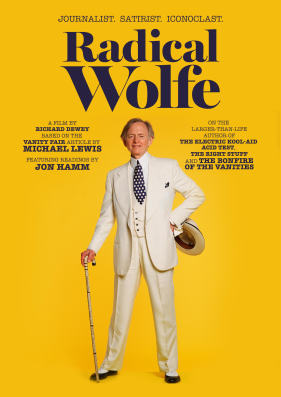
13. “Radical Wolfe” (USA)
The impact that words carry can be tremendous, sometimes powerful enough to change everyday speech, the nature of literature and even an entire culture. And, in many cases, those shifts can be traced back to the musings of gifted, insightful individuals. That’s where author Tom Wolfe (1930-2018) enters, stage left, as seen in this documentary from director Richard Dewey, based on a Vanity Fair article by author Michael Lewis. Wolfe, a onetime newspaper reporter, made his mark beginning in the 1960s with an Esquire magazine article about southern California’s hot rod and custom car culture that turned conventional journalism on its ear. Almost overnight, he became a New York and national media sensation, introducing what he called “the new journalism,” a practice of writing and reporting that called for drawing upon all of the literary tools available to authors of all stripes in the penning of nonfiction works, a move aimed at eliminating much of what he saw as the tiresome tedium that had come to characterize most of such pieces. Before long, over the next several decades, he established a reputation for cutting-edge writing through various magazine articles and such books as The Electric Kool-Aid Acid Test, Radical Chic & Mau-Mauing the Flak Catchers, The Right Stuff and From Bauhaus to Our House. He subsequently went on to release novels like The Bonfire of the Vanities and Man in Full. And several of these titles were even adapted as motion pictures, clips from which are liberally featured in this film biography. In addition to his prolific bibliography, Wolfe also distinguished himself as a character unto himself, a transplanted polite Southern gentleman and flamboyant sartorial dandy who could cut people to the quick with the stroke of his pen and wasn’t afraid of tackling controversial subjects that many of his contemporaries would never touch. His story is told in an admittedly somewhat conventional but exceedingly well-defined, economical, briskly paced manner, featuring interviews with those who knew him and admirers who savor his work, as well as archive footage of the author himself from many well-known media vehicles of his time. “Radical Wolfe” is an insightful and entertaining celebration of the writer’s life and work without ever gushing and never shying away from portraying him warts and all. Wolfe took New York literary society and the country by storm with his singular way with words, the kind of unabashed, articulate, inventive scribe we could use more of these days.
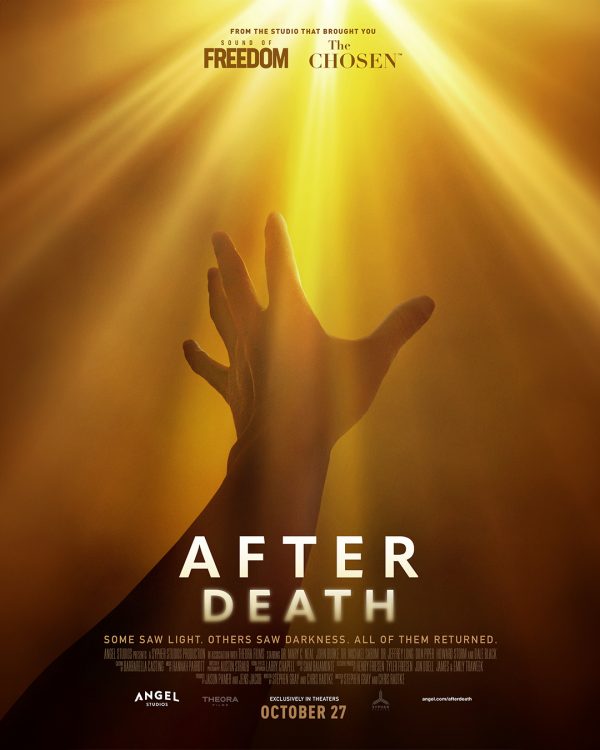
14. “After Death” (USA)
Talking about the subject of Near Death Experiences (NDEs) was once about as taboo as speaking about UFOs or seeing a psychiatrist – sure signs that someone was probably psychologically unstable, even if he or she merely believed in these things, let alone having had actual experiences with them. Thankfully, however, those days are largely behind us now, and speaking about them openly and honestly has become much more rational, commonplace and accepted. Such is the case in this offering from directors Stephen Gray and Chris Radtke, who provide a comprehensive look at a subject that was once considered suspect – even laughable – but is now taken quite seriously, including by those who were once among its greatest detractors. The film presents a detailed look at the phenomenon, featuring interviews with such researchers as Raymond Moody, often credited as being primarily responsible for bringing NDEs into the mainstream dialogue, and experiencers of these events. It also presents a series of NDE re-enactments, including depictions of what led up to them and what happened as the experiences unfolded, all backed by stunningly gorgeous CGI effects of an admittedly indescribable reality and a beautifully emotive original score. This combination of elements thus provides an excellent overview of what make up NDEs while simultaneously conveying the obviously heartfelt emotions associated with them, bringing the experiences home to viewers in a way that other documentaries on the subject haven’t previously been able to accomplish. It sheds profound light on what can happen when one goes through these existential gateways and how returnees are often fundamentally changed by the experiences, giving them new outlooks on life and their purpose in it. While it’s true that this offering doesn’t present much that’s especially new about NDEs and that its pacing can be a little slow (and redundant) at times, it nevertheless does a superb job of immersing audiences in the material, again, a big improvement over previous attempts at addressing this subject. And pay no heed to the cynics who have erroneously called this little more than religious propaganda; while it’s true there are a handful of Christian-oriented references scattered throughout the film, the overall take here is more spiritual in nature, an ecumenical approach at examining the afterlife than one that’s exclusively rooted in any particular theological tradition. Viewers who may have been skeptical, unfamiliar with or skittish about this subject may find themselves surprisingly enlightened by what this release has to say. And the fact that it played widely in mainstream theaters to astonishingly well-attended audiences also speaks volumes about the appeal and apparent universality of this title. As this film so astutely shows, death isn’t the end – and it’s high time we stopped looking at it that way.

15. “Slava Ukraini” (“Glory to Ukraine”) (France/Ukraine)
Most media coverage about the war in Ukraine – where most of us get our news about the conflict – comes down to a recitation of facts and figures, with the biggest and most dramatic stories receiving virtually all of the attention. But how does the war impact the nation’s citizens at the personal level? What’s more, we hear so much about the unity of Ukraine’s residents in combatting their Russian foes, but in what ways does that commitment materialize? Those are the questions that French writer-director-philosopher Bernard-Henri Lévy has sought to address in his thoughtful first-person documentary about how the hostilities have affected the country’s civilians, soldiers, laborers and spiritual leaders. Through these individual stories, viewers learn of their triumphs, tragedies, hopes and dreams, not to mention their unwavering faith that Ukraine will emerge victorious, especially in the wake of a growing number of battlefield successes. Told as a sort of travelogue through the nation’s various hot spots, including many on the front lines of the conflict, Lévy chronicles what has happened across Ukraine since the war’s onset in February 2022, oftentimes brought down to a touching, intimately personal level. This is enhanced by the filmmaker’s poetic narration, which, despite an occasional tendency to get a little too flowery and obscure in nature, puts these events into meaningful perspective, both in terms of what they mean for individuals and in larger terms morally and geopolitically. These observations draw significantly from history, showing parallels between the events in Ukraine and those that have unfolded on other conflict stages over the years, reminding us once again of the importance of learning from the past. When taken together, these elements combine to create a documentary that doesn’t fit the standard mold but that enlightens us to a far greater degree than many other films addressing the subject of warfare. “Slava Ukraini” provides valuable insight into an event that has the potential to leave a significant and long-lasting impact not just on the residents of Ukraine and its neighbors but on the totality of humanity as well.
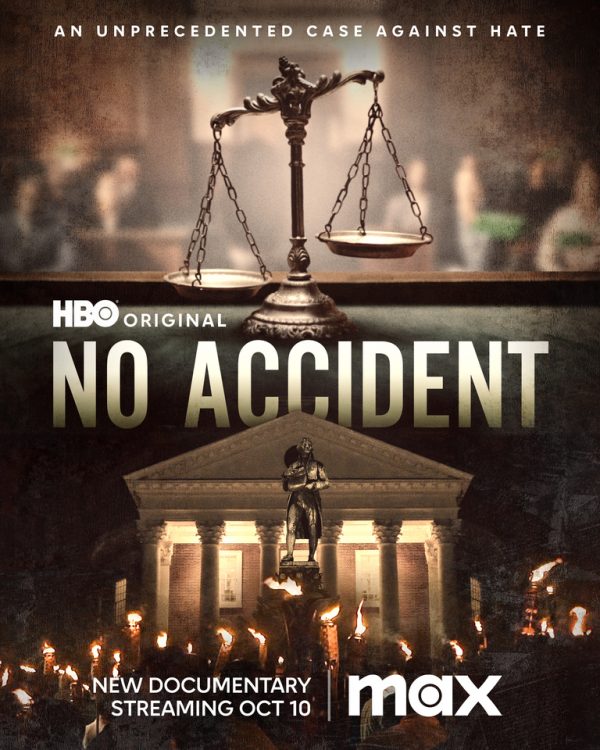
16. “No Accident” (USA)
Seeking justice in high-profile court cases is a common theme in films about the judicial system, one that’s frequently characterized by a hefty dose of inherent nobility and the presentation of high-minded arguments aimed at attaining rulings that many would see as foregone conclusions. But what happens when a case involves opponents who each zealously believe that their view is the “correct” one? Such is the case in director Kristi Jacobson’s HBO documentary about the legal team that prosecuted a group of ultra-right-wing white supremacist protestors on conspiracy charges to incite violence against counter-protestors in Charlottesville, VA, in August 2017, an incident that resulted in one death, multiple injuries and civil unrest. Convinced that the Trump Administration’s Justice Department would do little to investigate this conflict, the prosecuting attorneys decided to file a civil suit to seek liability damages against the apparently well-organized, intricately connected group of 24 defendants. The film unflinchingly exposes the often-raw racist, anti-Semitic and homophobic ugliness of those behind this event through shockingly offensive audio and video clips (sensitive viewers beware), as well as their deftly polished efforts at spinning their stories as mere exercises of their First Amendment rights to free speech. By contrast, the picture also skillfully shows how the prosecution meticulously built its case against these defendants, all the while seeking to contend with their strident denials of their actions and intents, their attempts at bullying plaintiffs’ witnesses during cross-examination, their less-than-subtle efforts at using the judicial forum as a soap box for their social and political views, and the distracting restrictions of trying to conduct a case during the middle of a pandemic. And, in the midst of all this, the filmmaker capably and sensitively shows the personal impact this case had on its nine defendants, thereby attempting to make this offering about more than just the courtroom proceedings. However, despite the picture’s definite strengths in these areas, the overall project nevertheless feels like it’s missing something, at times coming across as somewhat “clinical,” even rote, in its approach. At the same time, though, it also sends a loud and clear message about the potential dangers of organized events like this, given that right-wing individuals and groups have cited the Charlottesville incident in their communications as a template that might be (and already has been) used elsewhere. Indeed, electronic media like the internet, social media and cell phones have undoubtedly provided us with many benefits, but they have also made it easier for widely separated insurgents to talk to one another and plan comparable initiatives that are anything but random coincidences – events that are far from “accidents.”
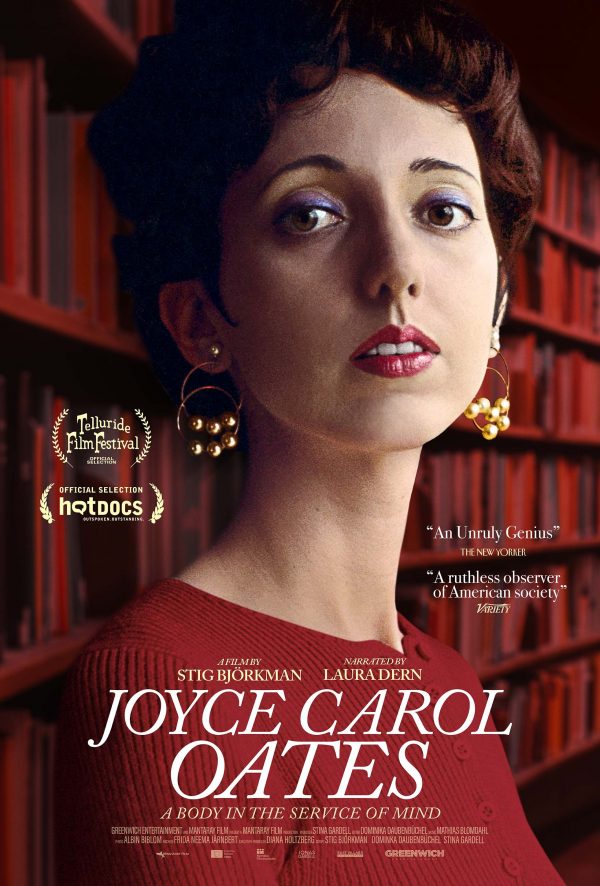
17. “Joyce Carol Oates: A Body in the Service of Mind” (Sweden)
Telling the story of a talented and prolific artist can be quite a challenge: What should be included? What should be excluded? And how should the narrative effectively fuse the personal and professional sides of the artist’s life? It’s a task that’s easy to get wrong (and, unfortunately, it happens far too often in many contemporary film biographies). So it’s indeed comforting to see one that gets things right, as is the case with this well-crafted documentary about writer Joyce Carol Oates, author of more than 100 books (many of them award winners) in multiple genres, both under her own name and several pseudonyms. On top of that, though, she has also developed a renowned reputation as a professor and as an outspoken and eloquent liberal social and political critic, both through her writings and social media posts. Writer-director Stig Björkman’s latest presents a comprehensive, articulate and skillfully organized profile of Oates, showing how her meager beginnings played a role in her love of writing and the views she embraced upon coming of age, themes repeatedly reflected in her prose. The film accomplishes all this in a clear, concise, balanced, economically packaged offering, making its points about her public and personal lives without unduly belaboring them and backing them up with voice-over readings from her books by Laura Dern. If I had any complaint about this release, it would be that its ending seems a bit abrupt and truncated, almost as if the filmmaker didn’t quite know how to suitably wrap up the project. There’s really no need for this, either, given that the picture’s efficient 1:34:00 runtime is far from excessive. That aside, however, this is an otherwise-excellent overview of a writer whose works truly deserve all the gracious attention and praise that they receive, providing Oates’s fans with a fitting tribute of the author and viewers unfamiliar with her books plenty of good reason to give them a serious look.
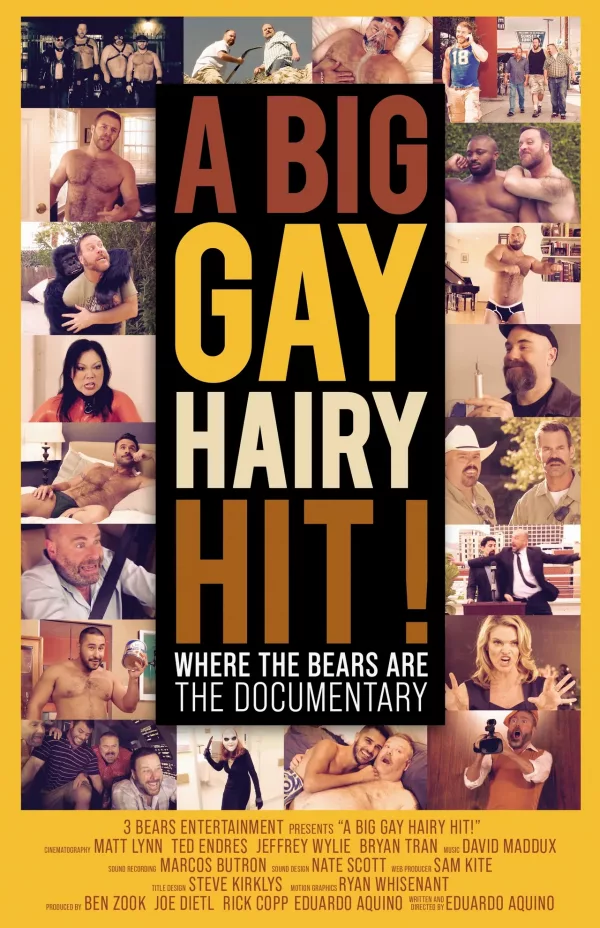
18. “A Big Gay Hairy Hit! Where the Bears Are: The Documentary” (USA)
So you think all of the world’s bears are in zoos or in the wild, right? Well, if you visit any venues or neighborhoods frequented by gay men, you just might find yourself in the company of another pack of ursine creatures – Bears – one of the largest and least-known constituencies of the LGBTQ+ community. Consisting of predominantly big, burly, bearded, hirsute males (many of whom are best compared to modern-day lumberjacks), the Bear community’s numbers have swollen since their emergence in the late 1980s/early 1990s. But they’ve often gone unnoticed, both by society at large and even in LGBTQ+ circles – that is, until the premiere of an internet TV series known as Where the Bears Are. As an impromptu project dreamed up by a trio of seasoned entertainment industry professionals who were between gigs, the long-running series, which launched in 2011, is best described by its creators as a cross between The Golden Girls and Murder, She Wrote with a cast of big, fat, bearded gay guys. This bawdy, campy, outrageous internet TV show quickly became an unexpected sensation, partly for the quality of its product but also because it filled a niche for an otherwise-largely unserved audience, success that enabled this surprise hit to air for seven seasons. Director Eduardo Aquino’s excellent documentary tells how the show came into being, including a look at its creators’ impressive movie and TV background. But the film also examines what it’s like to produce a seat-of-one’s-pants video project on a shoestring budget with a ragtag crew of artists who are in it primarily for the sheer enjoyment that they get out of their work. It also shines a bright light on the uplifting impact the show has had on body and attitude positivity for gay men who don’t exactly fit the commonly held twink, leatherman and gym bunny stereotypes often associated with them. And it accomplishes all this with a briskly paced, no-nonsense, economical, insightful and highly entertaining approach, truly a fine example of what a good documentary should do. This one is a lot of fun and highly informative, particularly for those who’ve never been introduced to the show or to the raucous, sensual, fun-loving segment of gay society that it so fittingly represents. Two paws up!
Disappointments (In Descending Order)
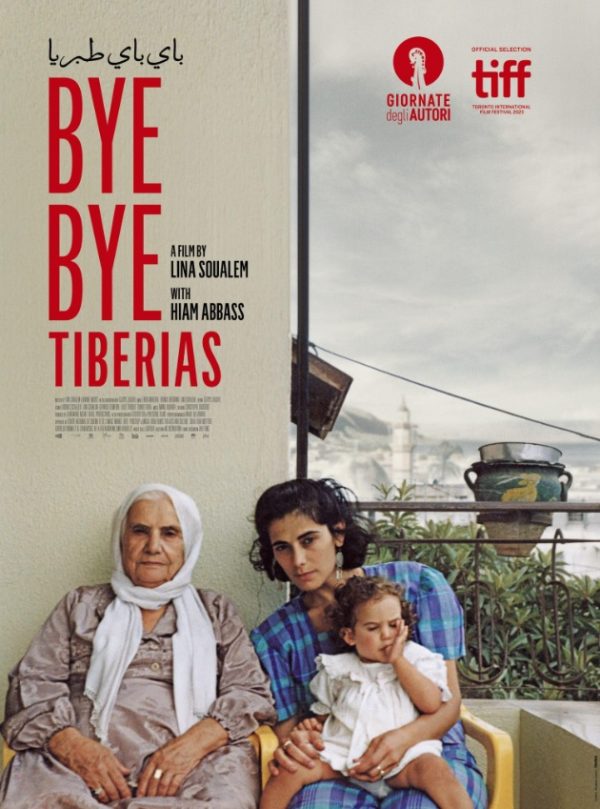
5. “Bye Bye Tiberias” (“Bye Bye Tibériade”) (France/Palestine/Belgium/Qatar)
Memorializing one’s family history is an exercise that can provide a valuable record of our relatives’ past and establish the legacy that has carried through the years to the present day. It can also teach us much about what distinguishes one’s kindreds in terms of their characteristics, accomplishments and values. The impact of that can be quite revelatory, too, producing a chronicle of inspiring insights and profound achievements of one’s relations, especially those that emerged in the face of challenge, adversity and cultural limitations. In her second documentary feature, director Lina Soualem has sought to capture a loving record of those qualities in this highly personal film that charts the lives of four generations of her family’s women, including herself, her mother (Emmy-nominated actress Hiam Abbass), her grandmother and her great-grandmother. This Independent Spirit Award nominee for best documentary feature primarily follows the experiences of the filmmaker’s three ancestral generations during their lives in their Palestinian homeland from the days of the creation of Israel in 1948 to the time of Abbass’s emigration to France, where she began her acting career and gave birth to her daughter. In doing so, the film juxtaposes the family’s individual history with that of the larger cultural backdrop against which their story is set. It also provides viewers with a look at the actress’s return to Palestine with her daughter after a prolonged absence, a time of remembrance and reflection. As touching and uplifting as this story can be, however, there are times when it starts to play more like a highly polished home movie than a theatrical documentary. It also would have benefitted from a deeper look at the historical back story and how its events helped shape the lives of these courageously determined women. That’s particularly true in the wake of recent developments (even though this film was made before them), given that the inclusion of such background material would have leant a more profound understanding to the longstanding prevailing circumstances in Palestine and the role that they played in the unfolding of this family’s story. Moreover, the film seems to puzzlingly downplay Abbass’s career accomplishments, achievements that marked a key turning point in the family’s history, one specifically inspired by her yearning to leave the “suffocating” conditions of life in her homeland. Soualem certainly deserves kudos for her attempt to deftly mesh personal and cultural considerations in this film, her heart clearly in the right place. However, the overall mix doesn’t quite gel as well as it could have, leaving viewers with a story that may be moving and poetic but that somehow feels somewhat incomplete. Perhaps that comes from being too close to the material, no matter how sincere one’s intents might be – and how earnestly one wants to see those goals fulfilled.
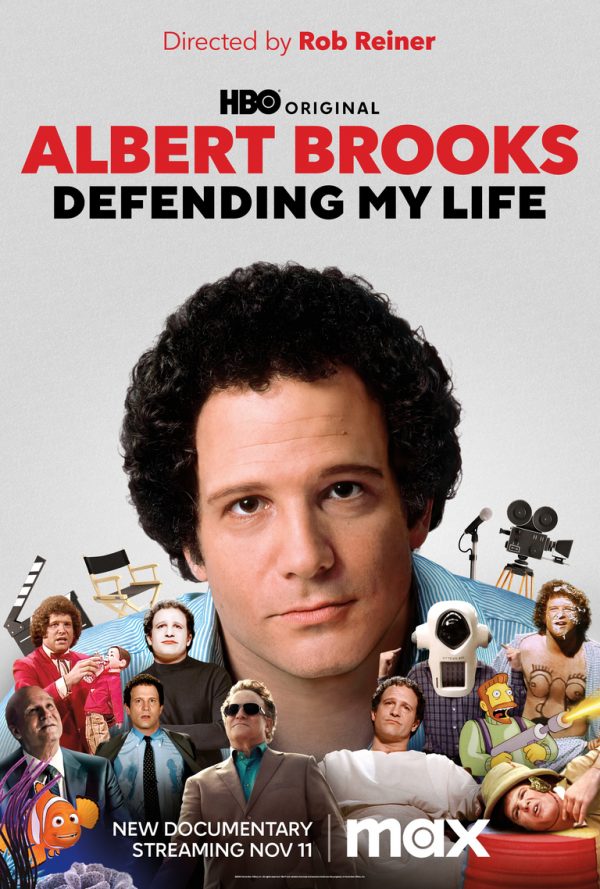
4. “Albert Brooks: Defending My Life” (USA)
When someone helps to shift the direction of something, regardless of the milieu involved, there’s a natural inclination to want to celebrate that individual’s contributions. In the area of stand-up comedy, one of the names that frequently comes to mind is Albert Brooks (born Albert Einstein – really). In the 1970s, his inventiveness took comedy in a new direction, inspiring others to follow suit and forever changing the art form, and this HBO documentary from Brooks’s lifelong friend, director Rob Reiner, is an apparently sincere attempt at paying tribute to the writer-actor-comedian-director. Unfortunately, this effort misses the mark in many respects (though it admittedly improves markedly in the picture’s back half). Perhaps the biggest issue here is Reiner himself; as someone who has known Brooks since high school, he’s probably too close to the material to present a balanced, objective view of his subject. Many of his interview sequences with Brooks come across as two old friends reminiscing about the past without providing sufficient back story information for the viewers, the result being a vehicle that’s a little too “inside” for audiences to fully appreciate the point of their conversations. What’s more, the film has an annoying tendency to gush, especially when it comes to the comedian’s early routines, work that may have been cutting-edge when first introduced but that, frankly, hasn’t withstood the test of time. Toning down the hype here would help immeasurably, particularly in the film’s interview segments with peers and admirers (including such entertainment industry heavy hitters as Chris Rock, Wanda Sykes, Ben Stiller, Sarah Silverman, Larry David, David Letterman, Conan O’Brien, Jon Stewart, Stephen Spielberg, James L. Brooks and Judd Apatow, among others), who often treat Brooks as the sole progenitor of innovative stand-up comedy, something of an overstatement considering the work of some of his contemporaries like the Not Ready for Prime Time Players, Andy Kaufman and others. The picture’s opening sequence, largely devoted to the foregoing, rambles on far too long, too, delaying its treatment of what works best in this documentary – an examination of Brooks’s achievements as the director of such movies as “Real Life” (1979), “Lost in America” (1985), “Defending Your Life” (1991) (his best work) and “Mother” (1996), as well as his performances in films like “Taxi Driver” (1976), “Broadcast News” (1987), “Drive” (2011) and “Concussion” (2015) and his animation voiceover work in “Finding Nemo” (2003), “Finding Dory” (2016) and his multiple appearances on the long-running TV series The Simpsons. These are the endeavors in which Brooks’s brilliance truly shines, and they generally deserve better, more complete treatment than what they receive here. Don’t get me wrong – I’m a big fan of Brooks; however, I wish his talents and achievements had been showcased in a better film than what’s on offer here. If you really want to get to know Brooks better, watch one of his films – they’ll show you more about him than anything featured in this documentary, a somewhat haphazard effort in need of spit and polish.
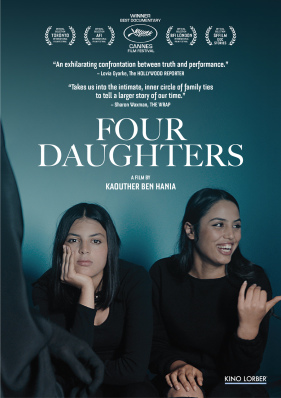
3. “Four Daughters” (“Les filles d’Olfa”) (France/Saudi Arabia/Germany/Tunisia/Cyprus)
Fusing fact and fiction is a precarious undertaking for a filmmaker, especially when it comes to matters of clarity and credibility. And that’s where this latest offering from writer-director Kaouther Bin Hania misses the mark. This fact-based story about Olfa Hamrouni, a Tunisian single mother who loses her two eldest daughters, Ghofrane and Rahma, to the radical recruitment efforts of ISIL while trying to protect her two youngest daughters, Eya and Tayssir, from befalling a comparable fate struggles mightily to tell a coherent tale. The film clumsily mixes interviews with family members and dramatic reenactments of significant events featuring actors portraying the principals (some of whom inexplicably play several roles). To complicate matters, this release features an inordinate amount of superfluous material, as well as seemingly important gaps in the story, often leaving viewers scratching their heads about how the narrative gets from one unrelated (and sometimes seemingly contradictory) development to the next. Add to that a relevant revelation that doesn’t appear until late in the film (with virtually no prior back story to support it), and you’ve got a patchwork accounting of what otherwise appears to be a moving and heartfelt tale that deserves greater intelligibility and a better overall delivery. What’s more, this offering includes a considerable amount of material about how this production is being put together, a modestly interesting sidebar that might make for an informative bonus feature, but the inclusion of these largely incidental segments within the primary narrative adds little and serves more to needlessly bog down the flow of this release. Given the foregoing, I’m at a loss to understand why this “documentary” (a term I use loosely) has received the amount of attention and adulation that it has garnered, especially in film festival and awards season competitions, including the Oscars, the Independent Spirit Awards and the Cannes Film Festival. Bin Hania has indeed established herself as a talented filmmaker in other priductions (especially those of a purely fictional nature), such as the outstanding Oscar-nominated offering, “The Man Who Sold His Skin” (2020), but she seems out of her league here. That’s unfortunate since Olfa’s saga is one that appears to be well worth telling but, sadly, doesn’t receive the treatment it truly deserves.
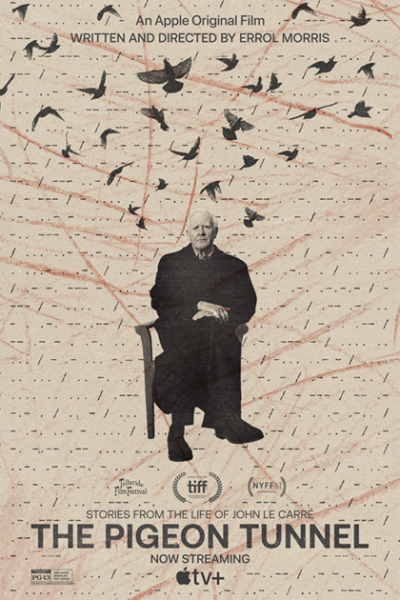
2. “The Pigeon Tunnel” (USA/UK)
Getting inside the head of a spy is undoubtedly challenging; getting inside the head of a novelist who was once a spy who now writes about that enigmatic profession is nearly impossible. And that’s one of the hurdles that hampers this profile of former MI5 and MI6 operative David Cornwell, better known to the world by his pen name, John le Carré (1931-2020). Based on the author’s memoir of the same name, the latest from documentarian Errol Morris puts the best-selling espionage novelist under the microscope, seeking to discover who le Carré is, what factors impacted his life and writings, and how his novels mirror those influences in terms of content and themes. Through discussions of books like The Spy Who Came in from the Cold, Tinker, Tailor, Soldier, Spy, Smiley’s People, A Perfect Spy and The Looking Glass War, backed by clips of film and television adaptations of these works, le Carré and Morris ruminate on the writer’s objectives in bringing them to life, some of them personal in nature and some of them expressions of his feelings about the murky underworld he left behind and brought to life on the printed page. Much of what the author consequently discusses comes across as dark, cryptic, and characterized by rampant intrigue and betrayal, not unlike the life he left behind (as well as the dismal upbringing he underwent at the knee of his untrustworthy father, a professional swindler adept at plying his craft). The insights, to say the least, are rather depressing and disquieting. But that unsettling material is further compounded by a string of often-perplexing observations about le Carré’s existential outlooks and literary intentions, some of which seemingly amount to little more than oh so much navel gazing and intellectual masturbation, overstated attempts at encapsulating his perspectives on human nature and human relations as reflected through his works. I can imagine that there’s probably a market for a film like this among Anglophiles captivated by the writer’s works, the spy novel genre in general and PBS/BBC television dramas, but this National Board of Review award winner really didn’t do much for me, especially since this offering pales in comparison to many of Morris’s other better productions. Thankfully, the film’s merciful 1:32:00 runtime proved to be its saving grace (even though the picture admittedly improves once it gets past an overly long, excessively detailed prologue). Ironically, le Carré observes in the film that he sees his novels as an antidote to the implausible James Bond books and movies, but, from where I stand, I’ll take 007 over this any day.
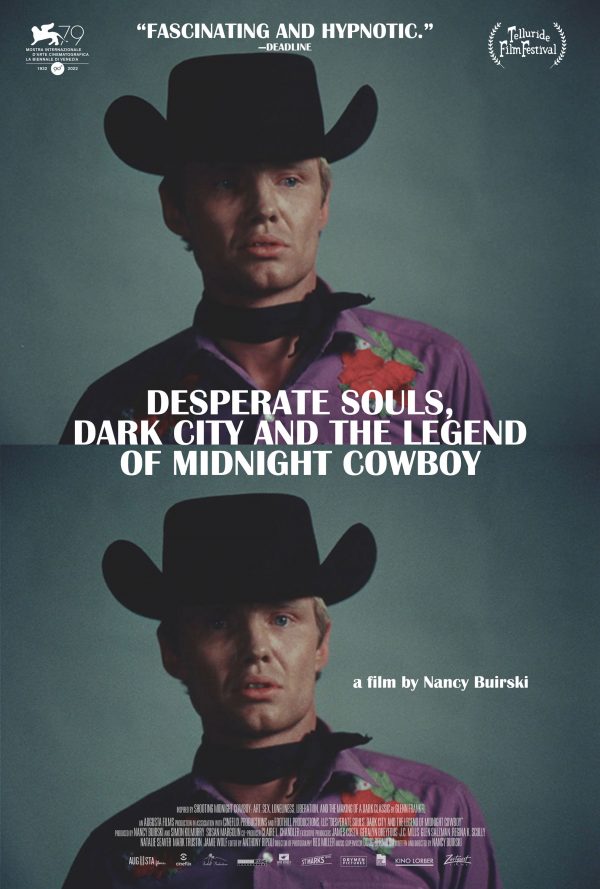
1. “Desperate Souls, Dark City and the Legend of Midnight Cowboy” (USA)
It’s unfortunate when a filmmaker sets out to pay tribute to a cinematic classic yet somehow manages to mangle the effort. Regrettably, however, that’s precisely what happens in writer-director Nancy Buirski’s attempted homage to John Schlesinger’s “Midnight Cowboy” (1969), the only X-rated film ever to win the Oscar for best picture. The scattered narrative of this poorly constructed documentary seems to focus on virtually everything except the movie itself, drawing upon an everything-but-the-kitchen-sink approach to explaining what influenced this screen epic rather than what actually went into the making of the picture itself. While it’s certainly enlightening and helpful to provide viewers with sufficient background about the timing of a movie’s production and the filmmaking influences that helped shape it, these practices nevertheless become a burdensome distraction when they dominate the documentary’s content and overshadow what made its supposed subject matter so noteworthy in the first place. As a consequence, the flow of this offering is about as unwieldy as its title, jumping around from ancillary subject to ancillary subject and often puzzlingly providing only the most tangential connections to its alleged core material. Granted, there are a few moderately interesting anecdotes here and there, as well as a few insightful references to how “Midnight Cowboy” went on to influence a number of subsequent film productions. But even the contemporary and archive interviews with director John Schlesinger, screenwriters Waldo Salt and James Leo Herlihy, and cast members Jon Voight, Dustin Hoffman, Brenda Vaccaro, Jennifer Salt and Bob Balaban shed little meaningful new light on this highly regarded offering. Perhaps the biggest problem here is that the underlying story of this documentary turned out to be inherently thinner than the filmmaker thought it was and that she chose to pad the material to artificially extend its length (although coming up with an entirely different narrative or editing the current one down to a film short would have made better options). It’s too bad this one fared as it has, as it’s a release that I truly looked forward to screening. It’s indeed one thing to establish a story in the context of its times and influences and to do it correctly (as was very much the case, for example, with the David Bowie documentary “Moonage Daydream” (2022)), [https://brentmarchant.com/2022/10/09/moonage-daydream-brilliantly-profiles-a-consummate-artist/] but this offering, sadly, is a prime example of how not to do it. “Midnight Cowboy” certainly deserved better than this, and one’s time would definitely be better spent watching the original than this failed attempt at honoring it.
Copyright © 2023-2024, by Brent Marchant. All rights reserved.

